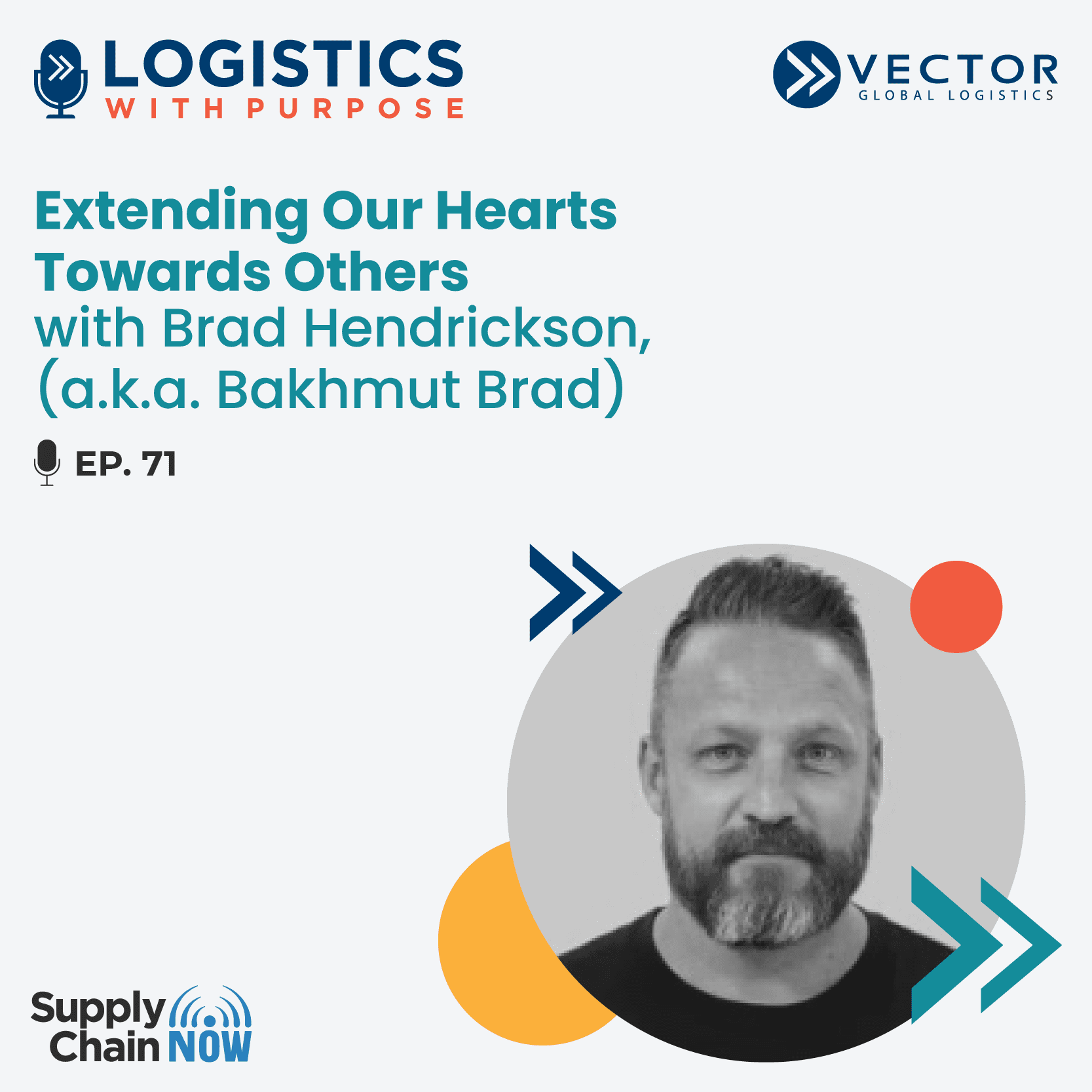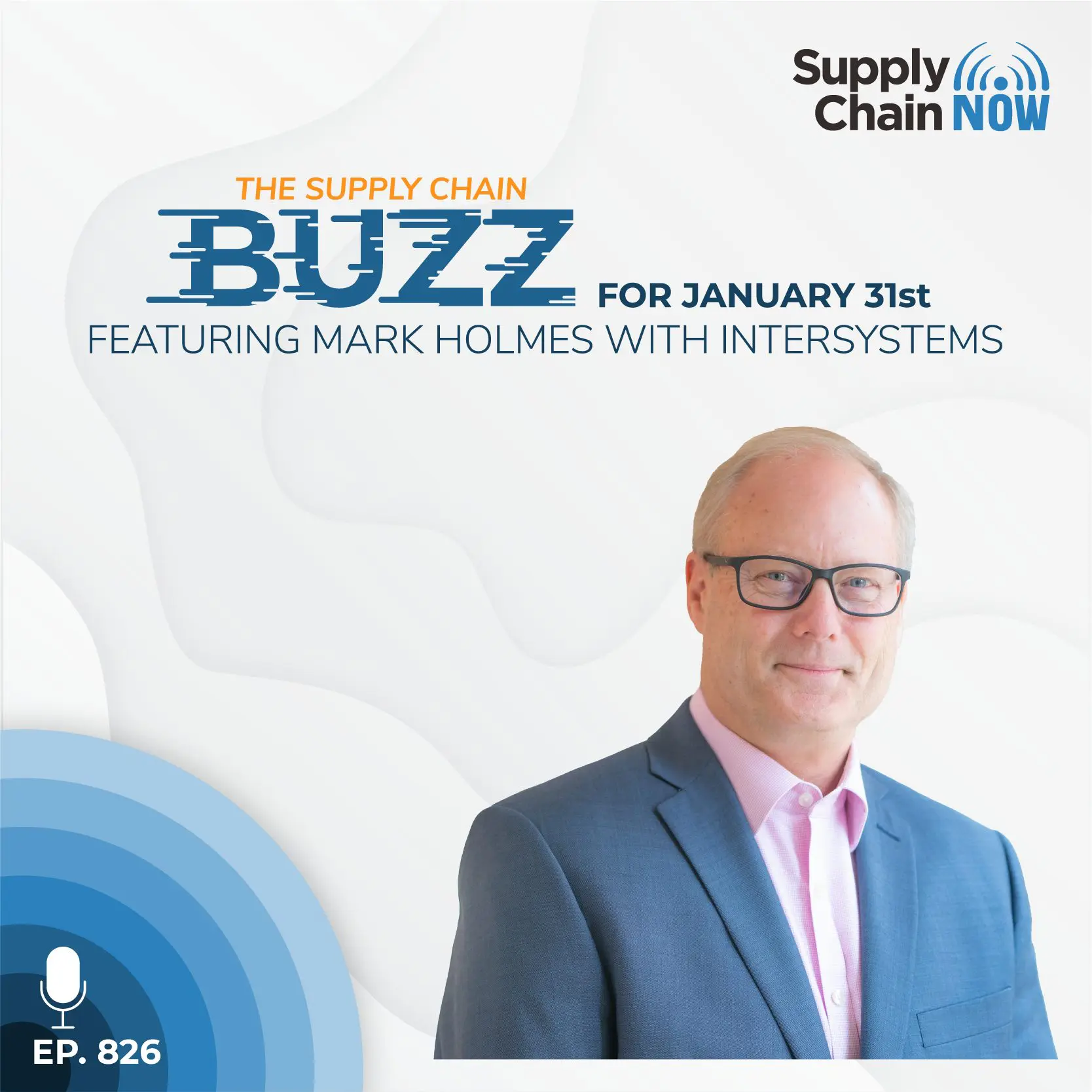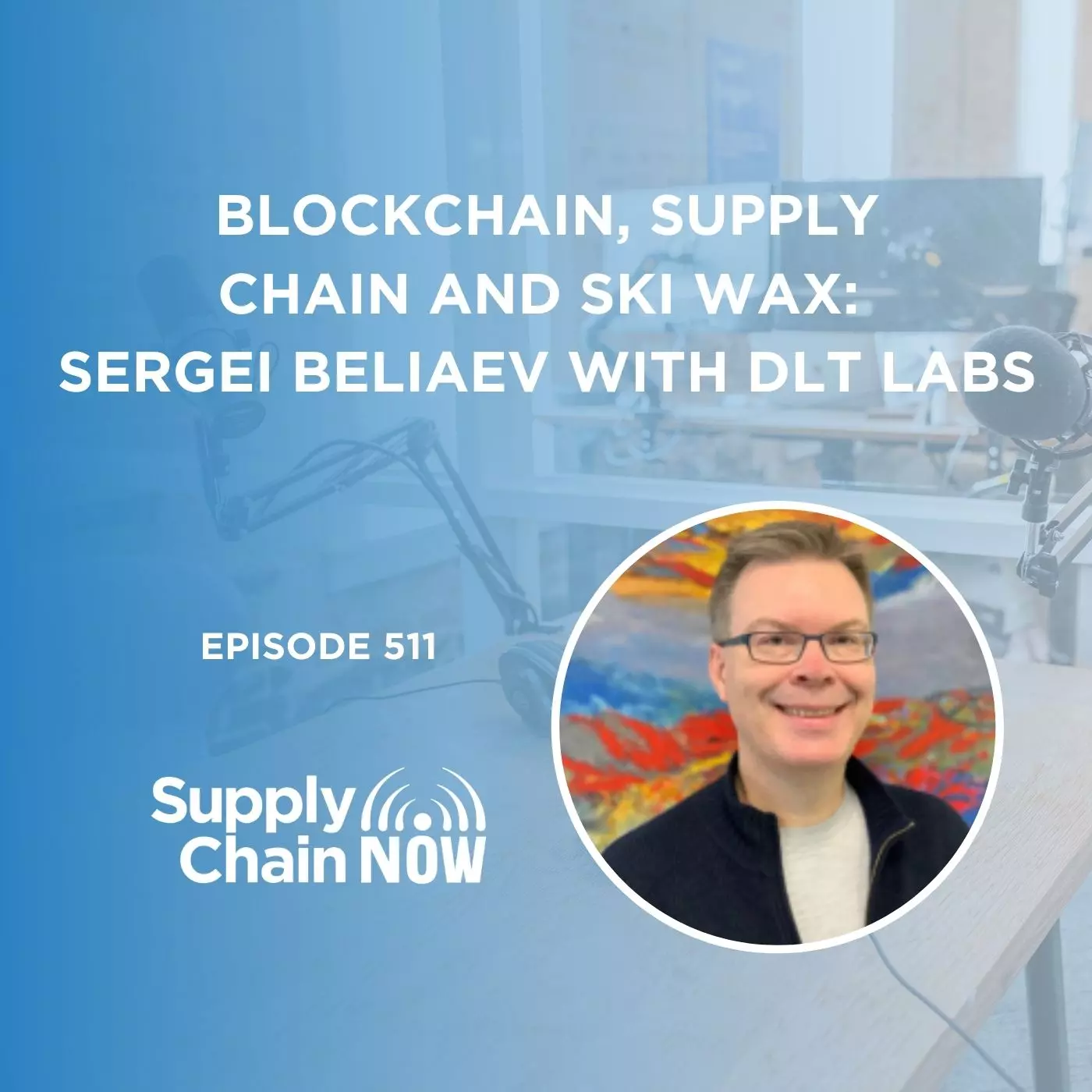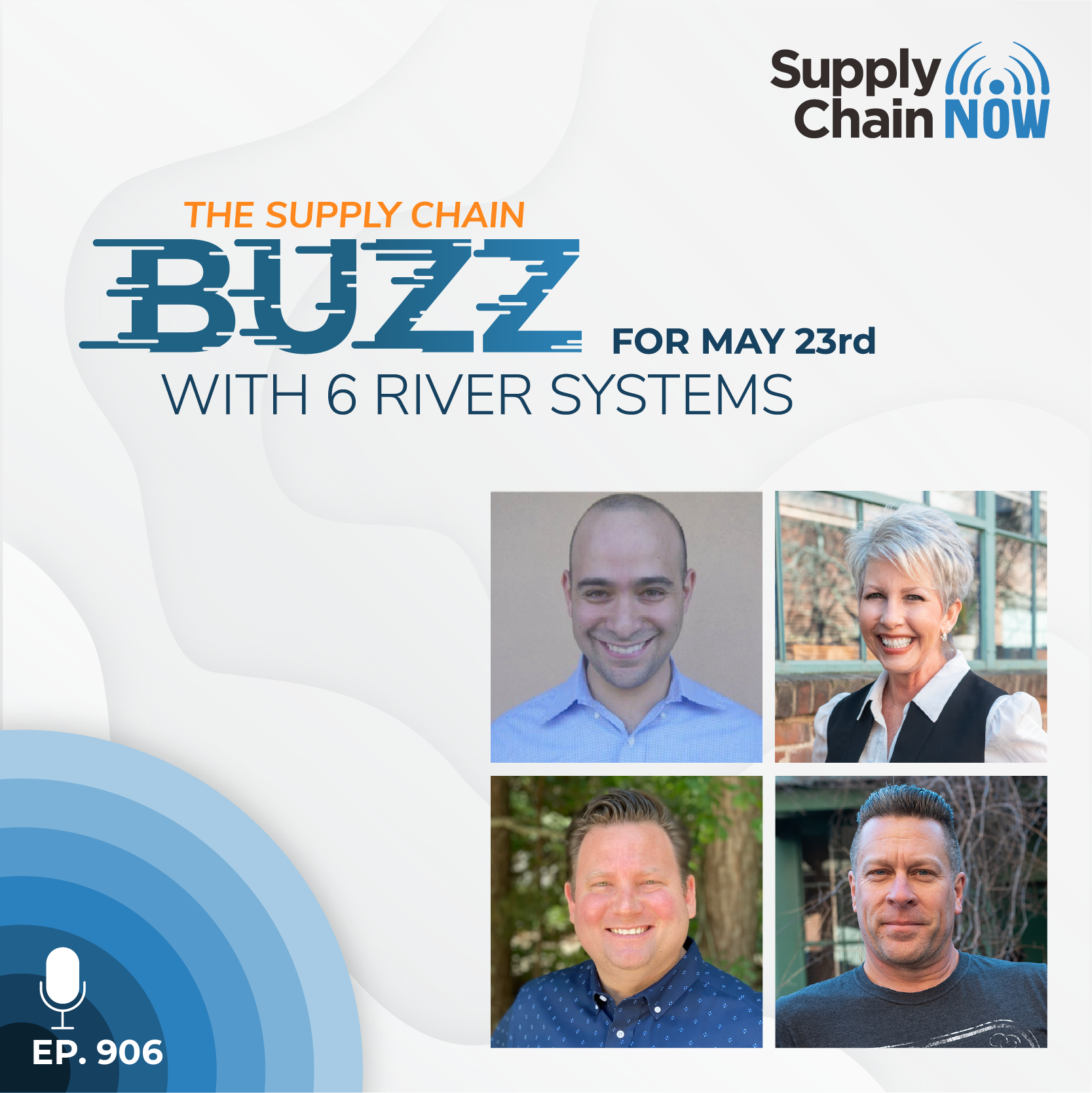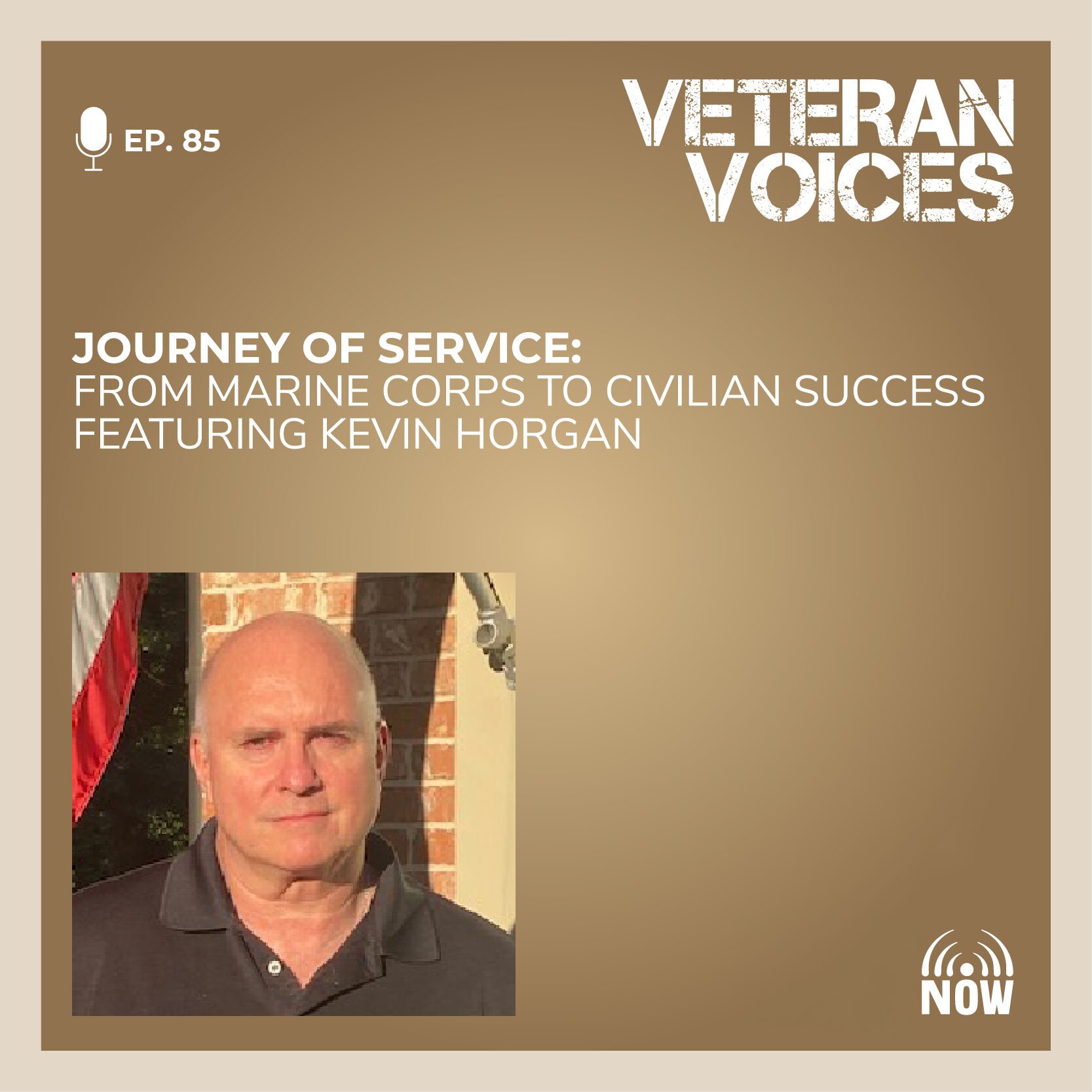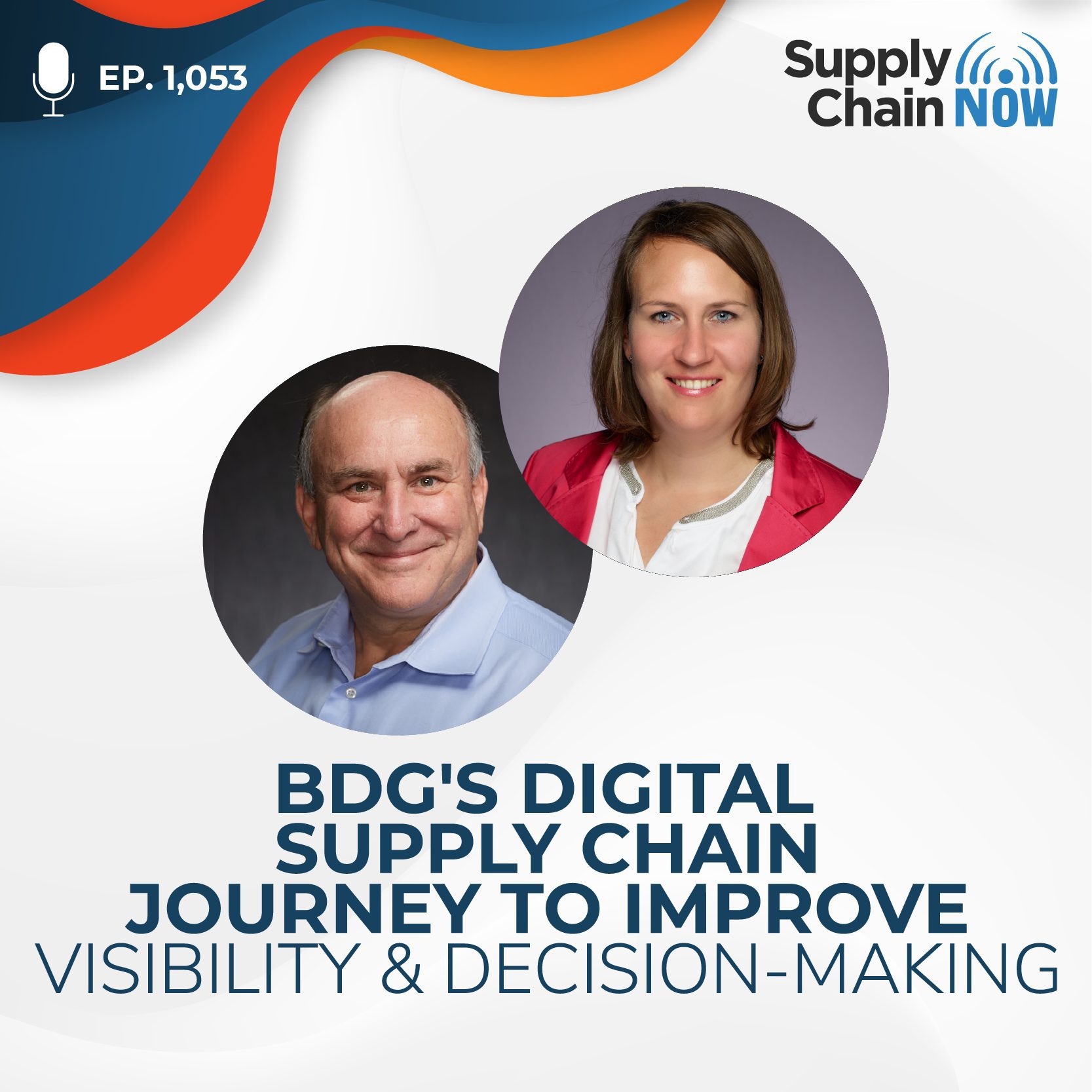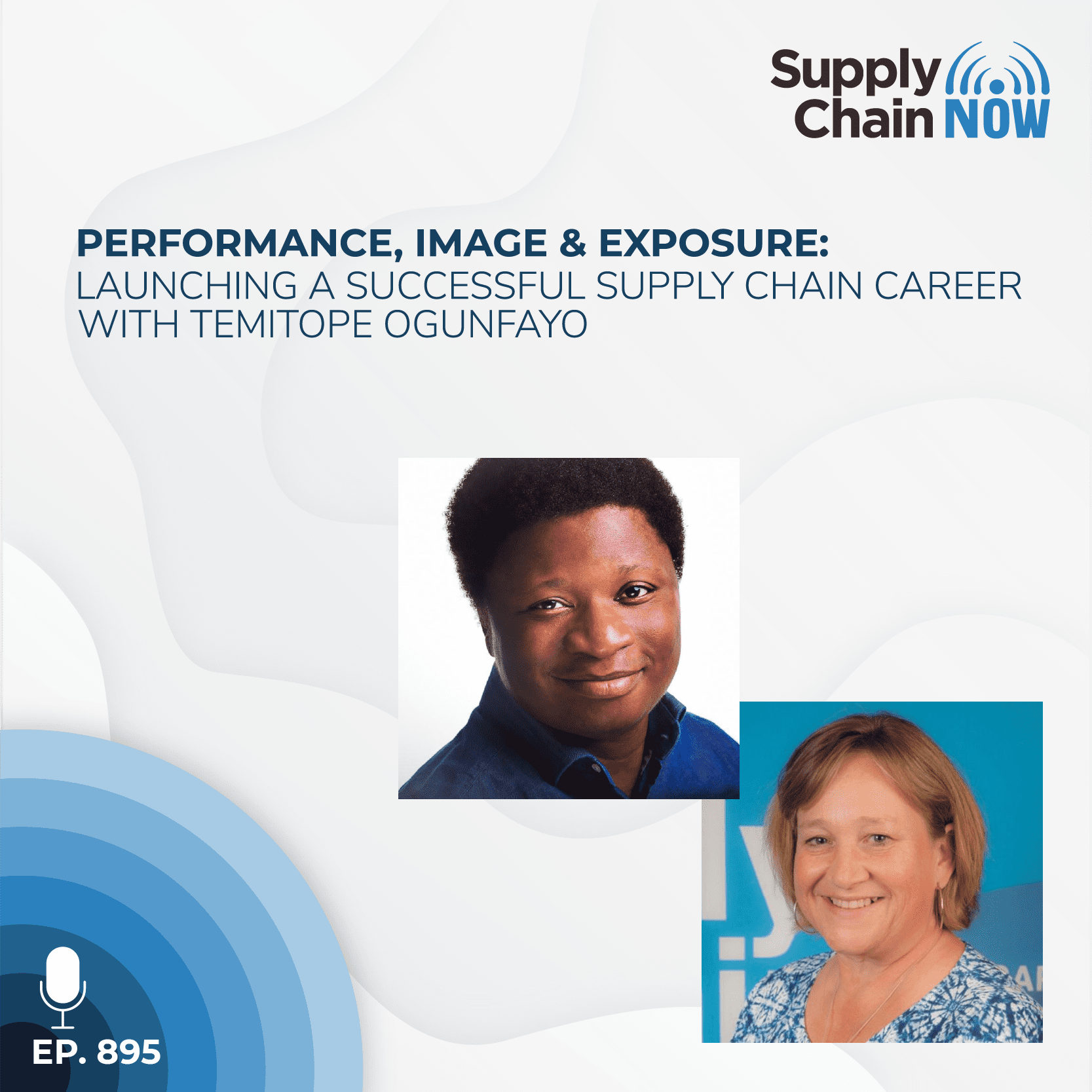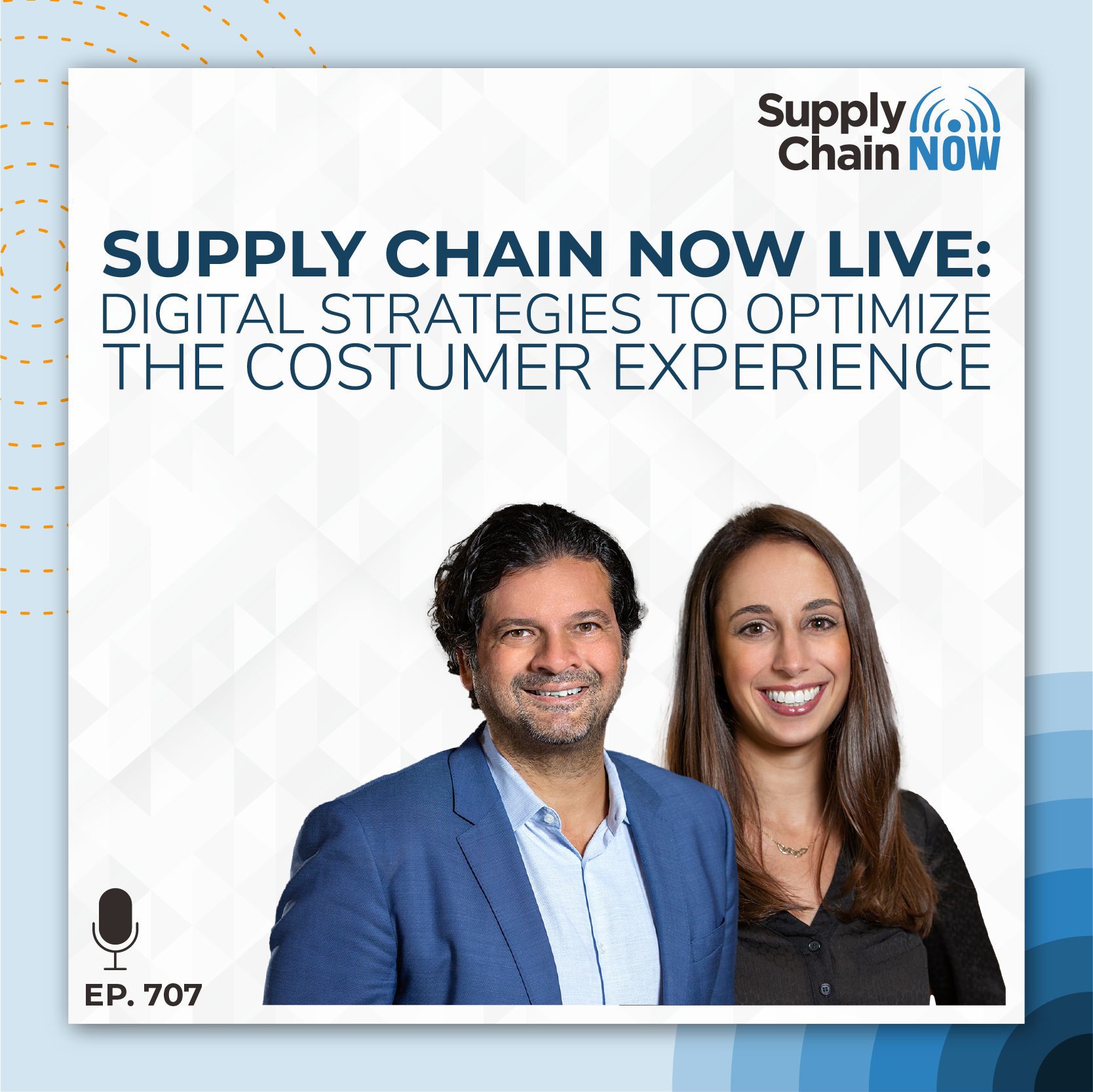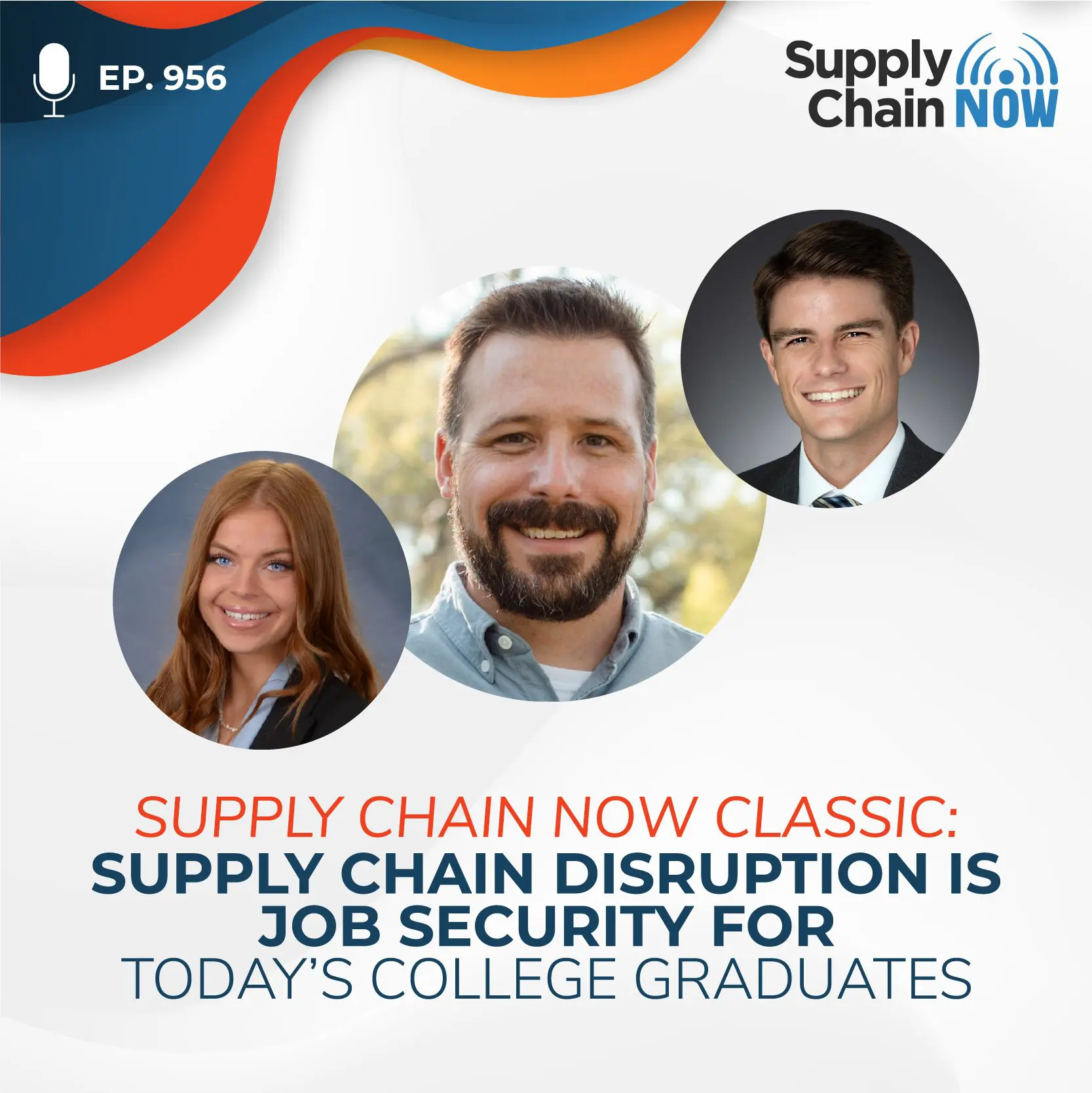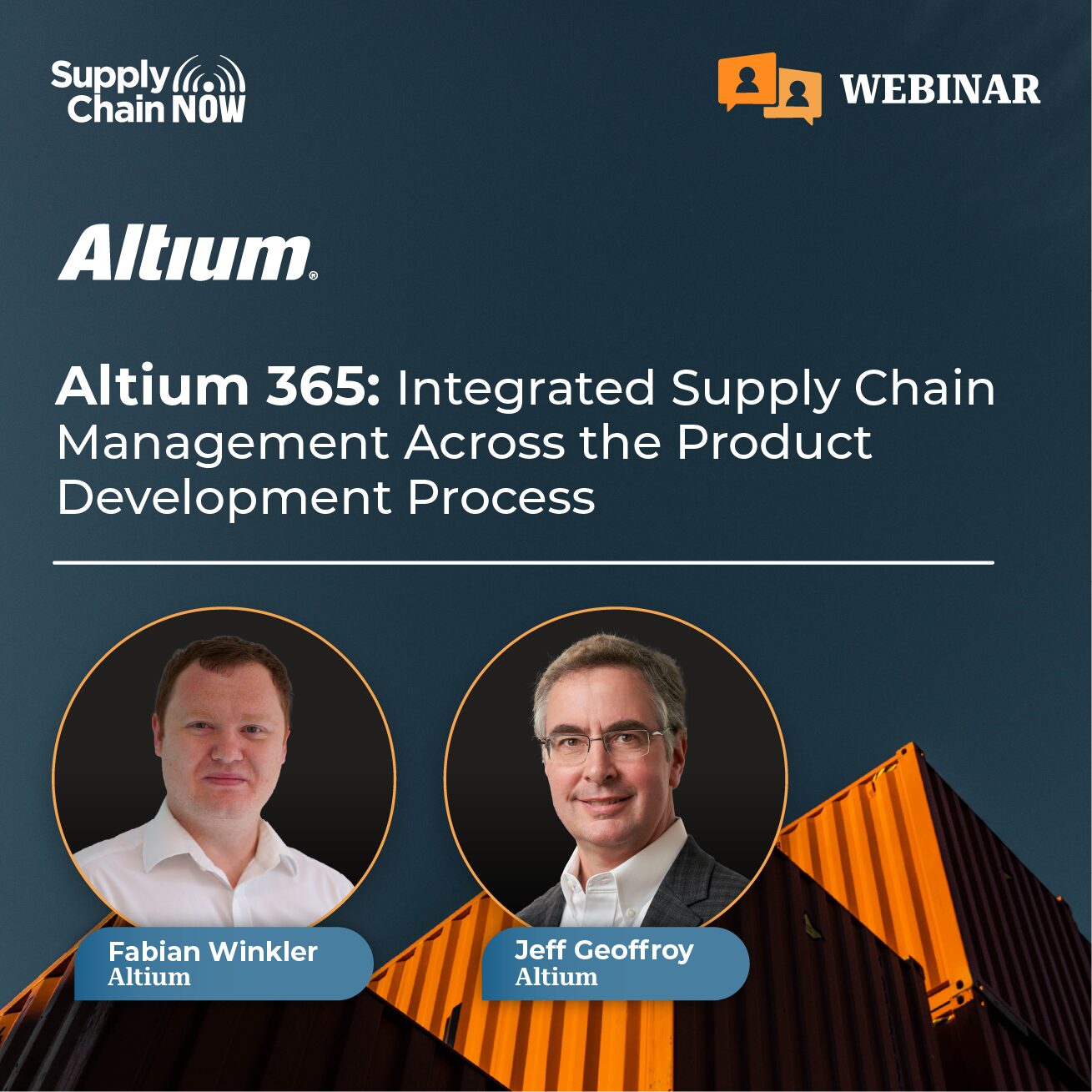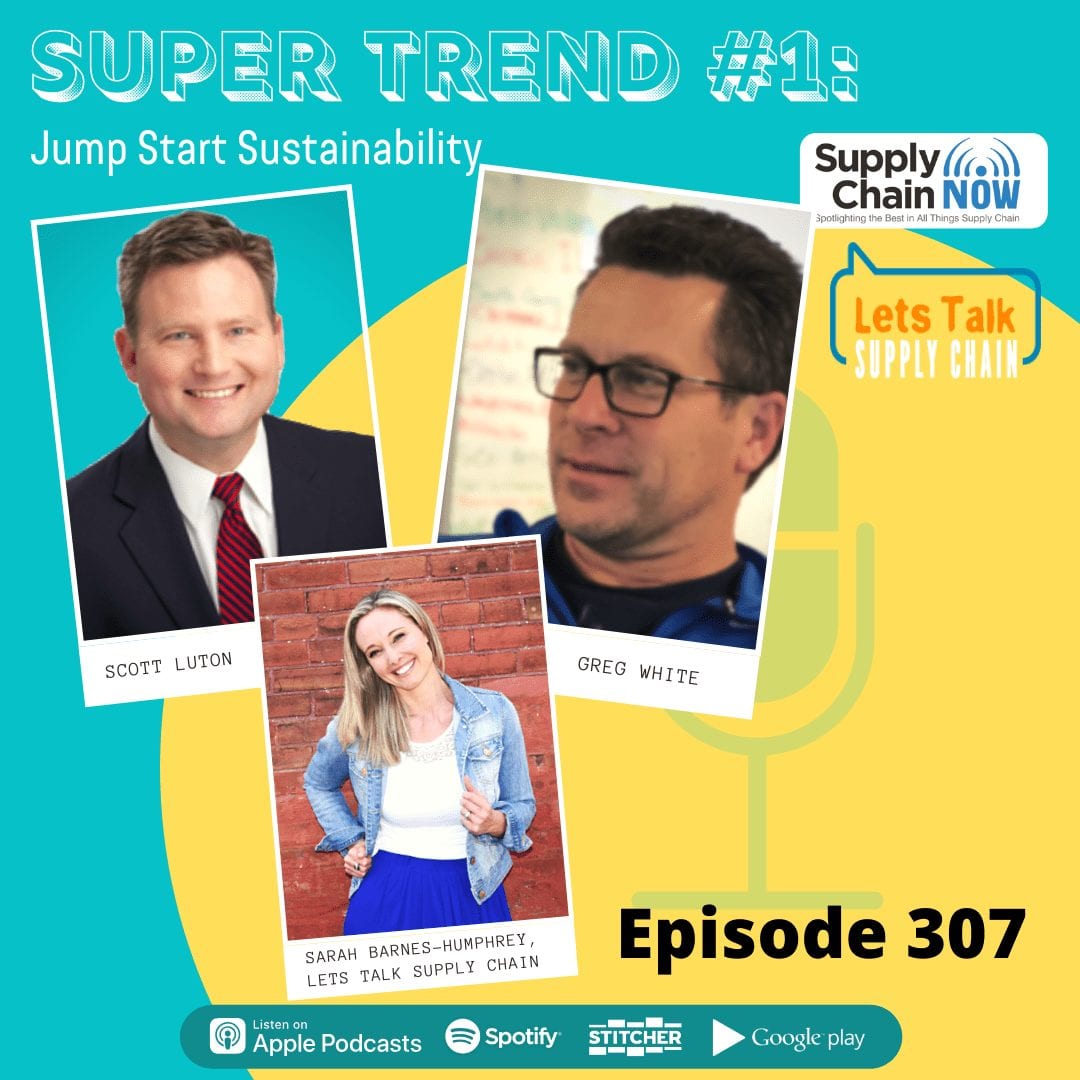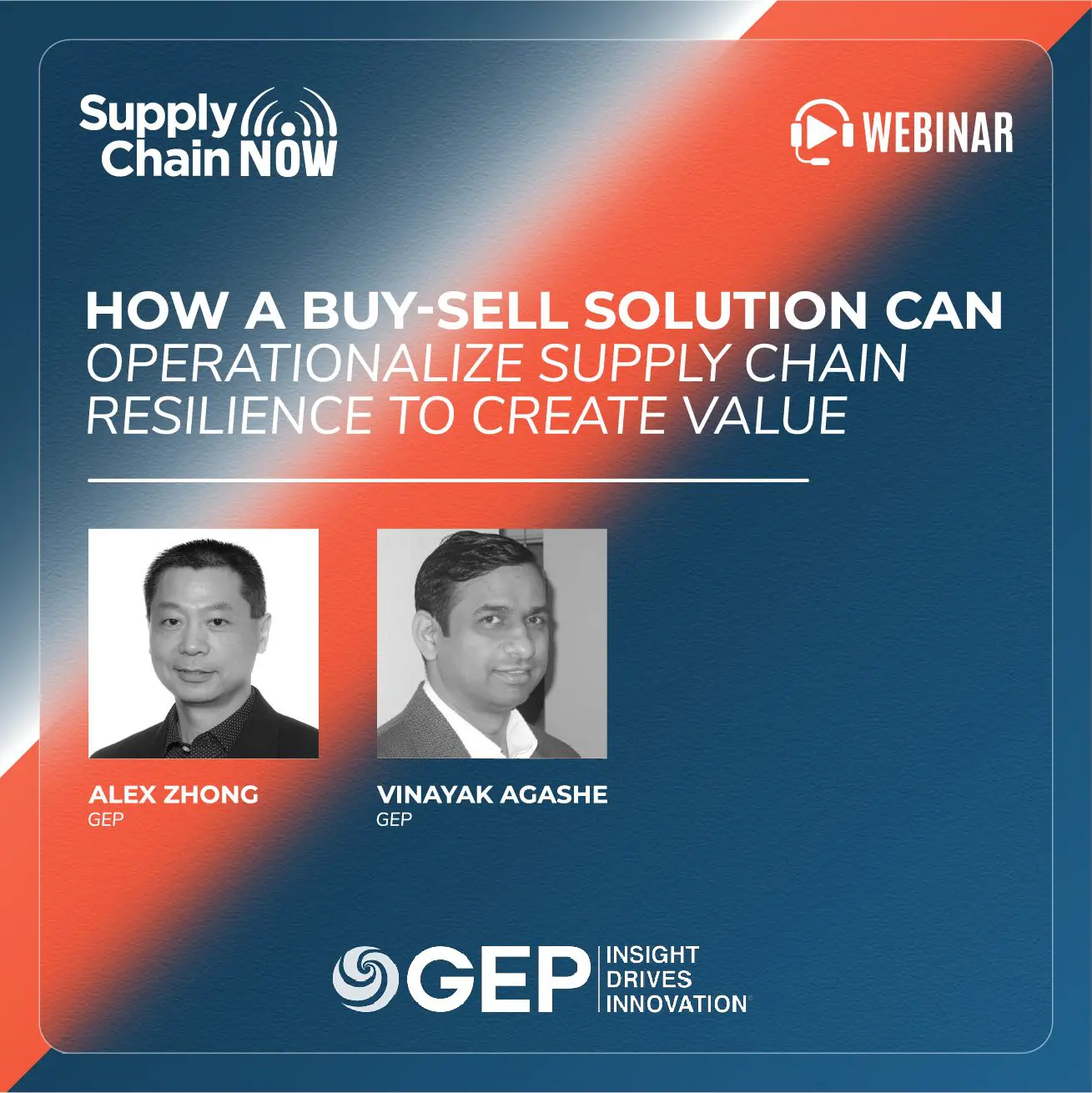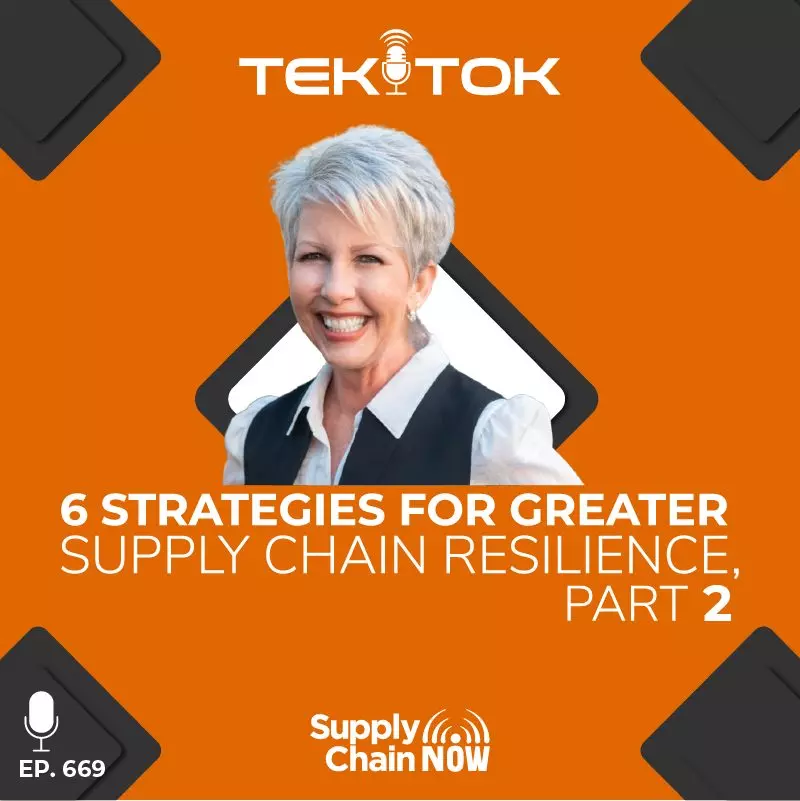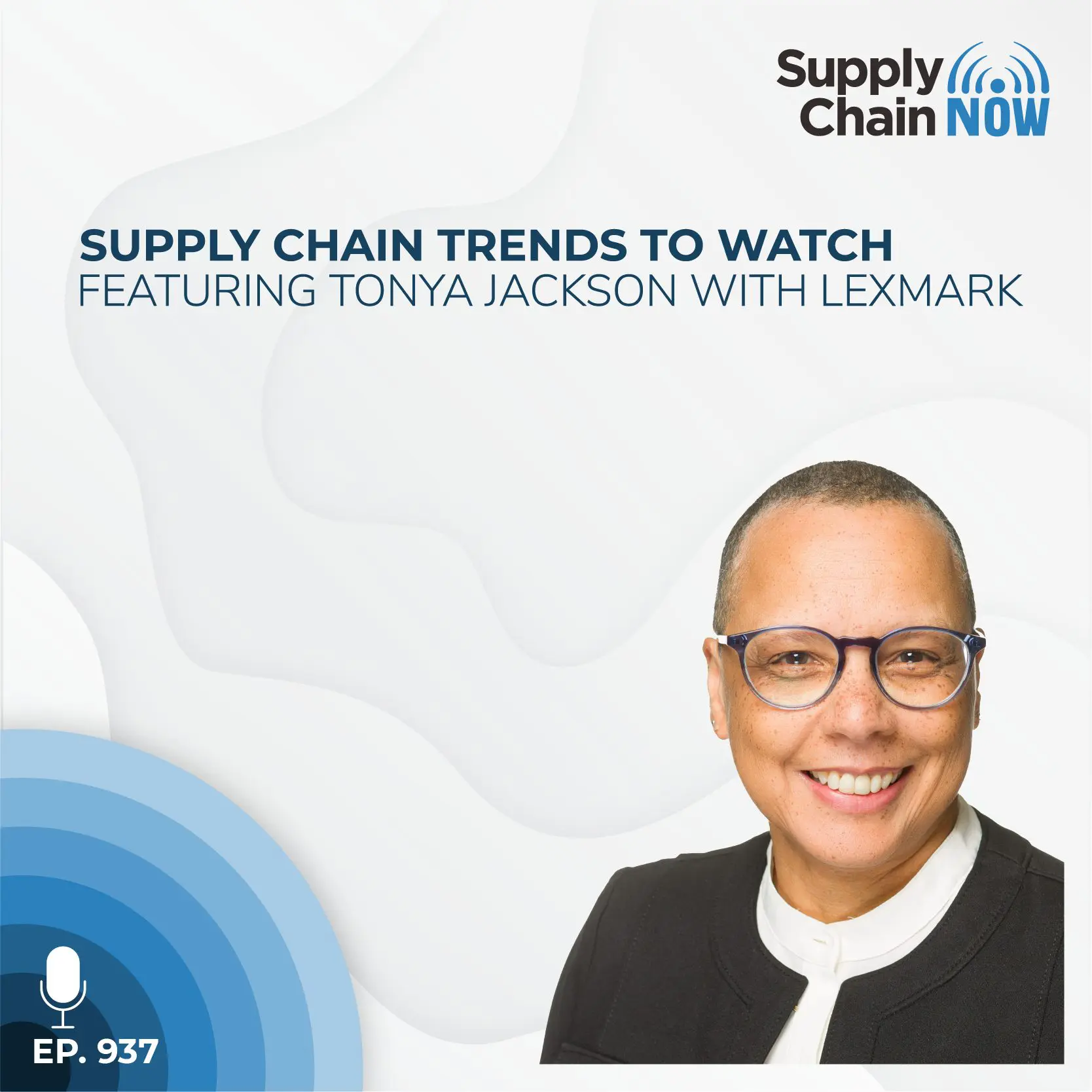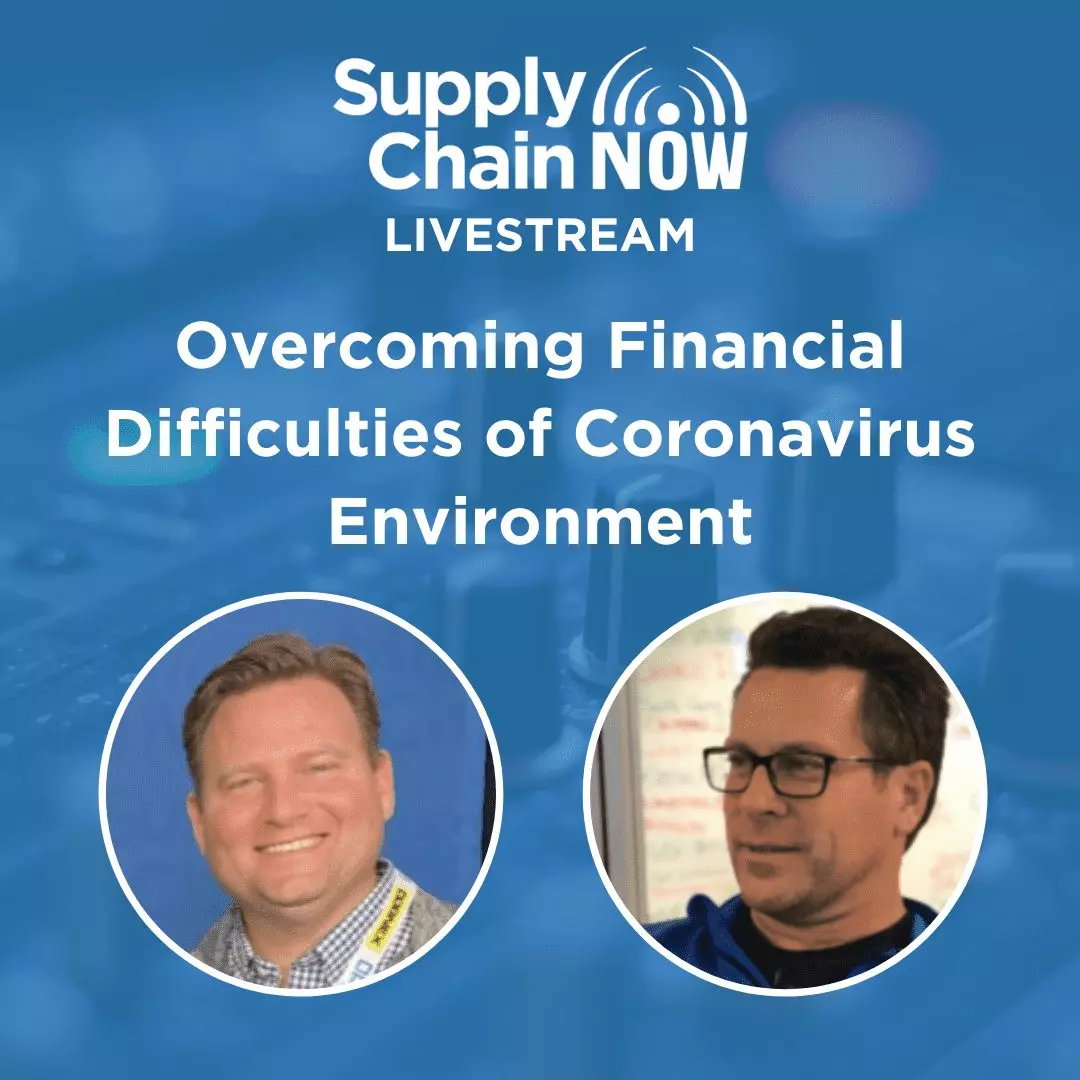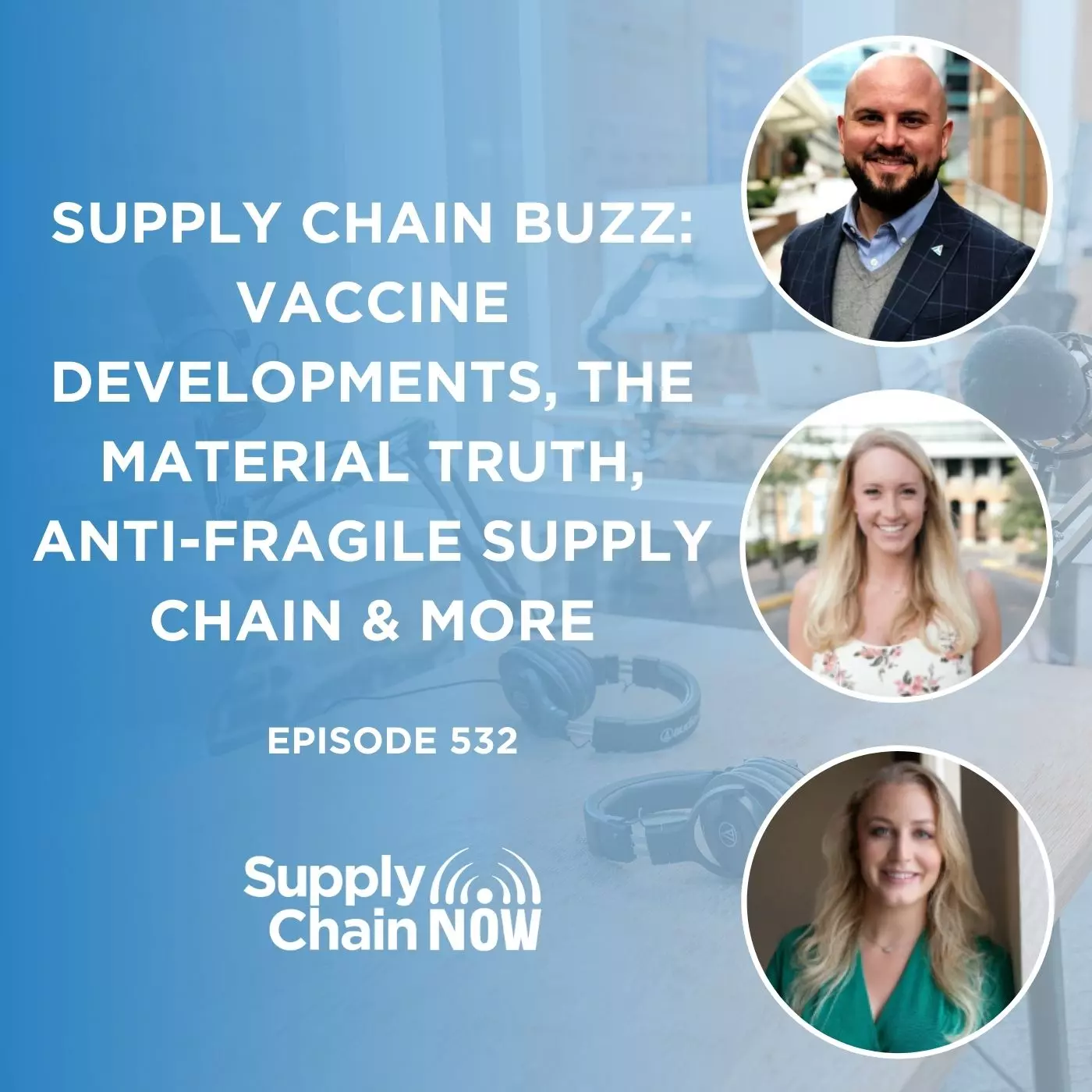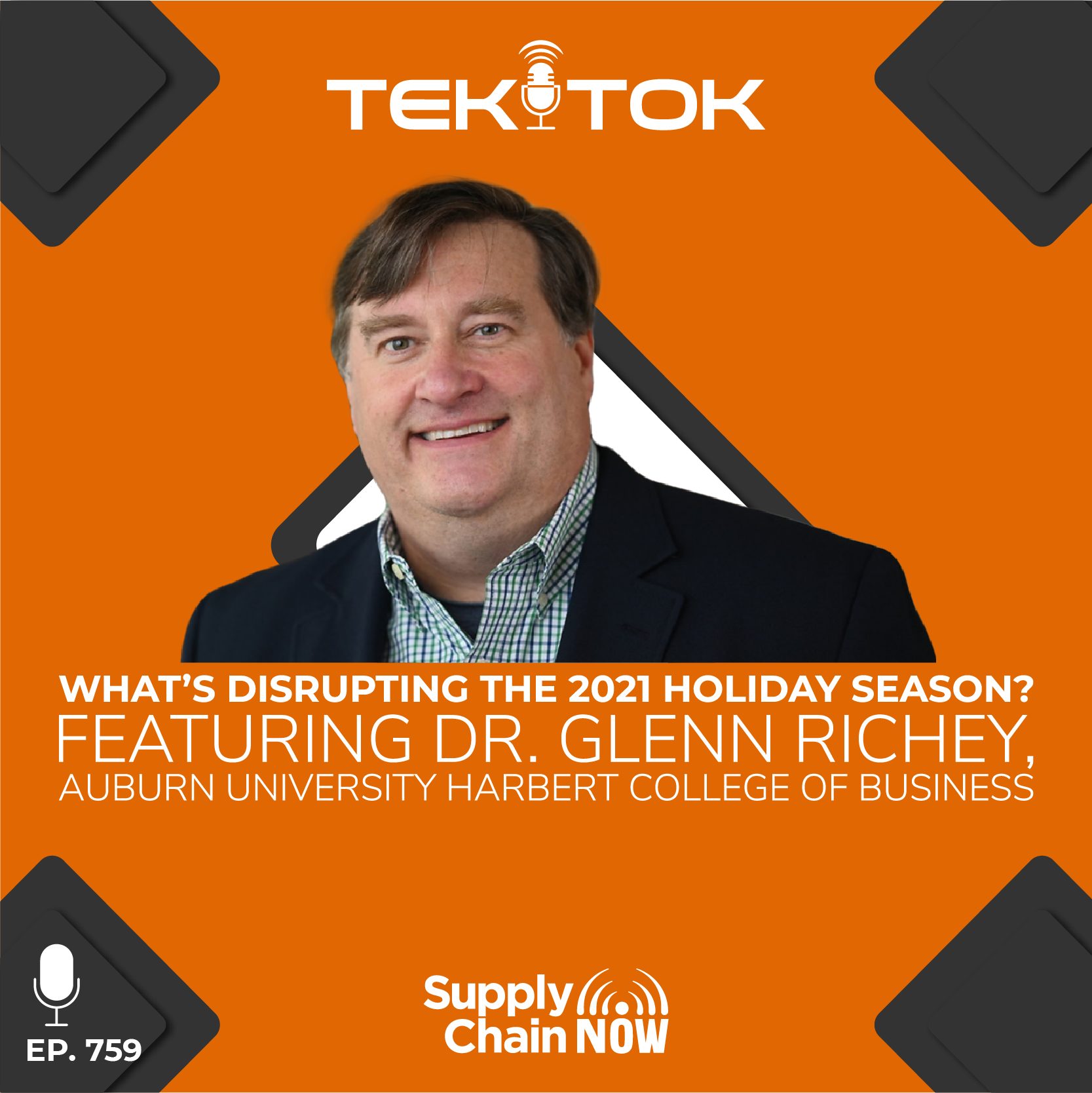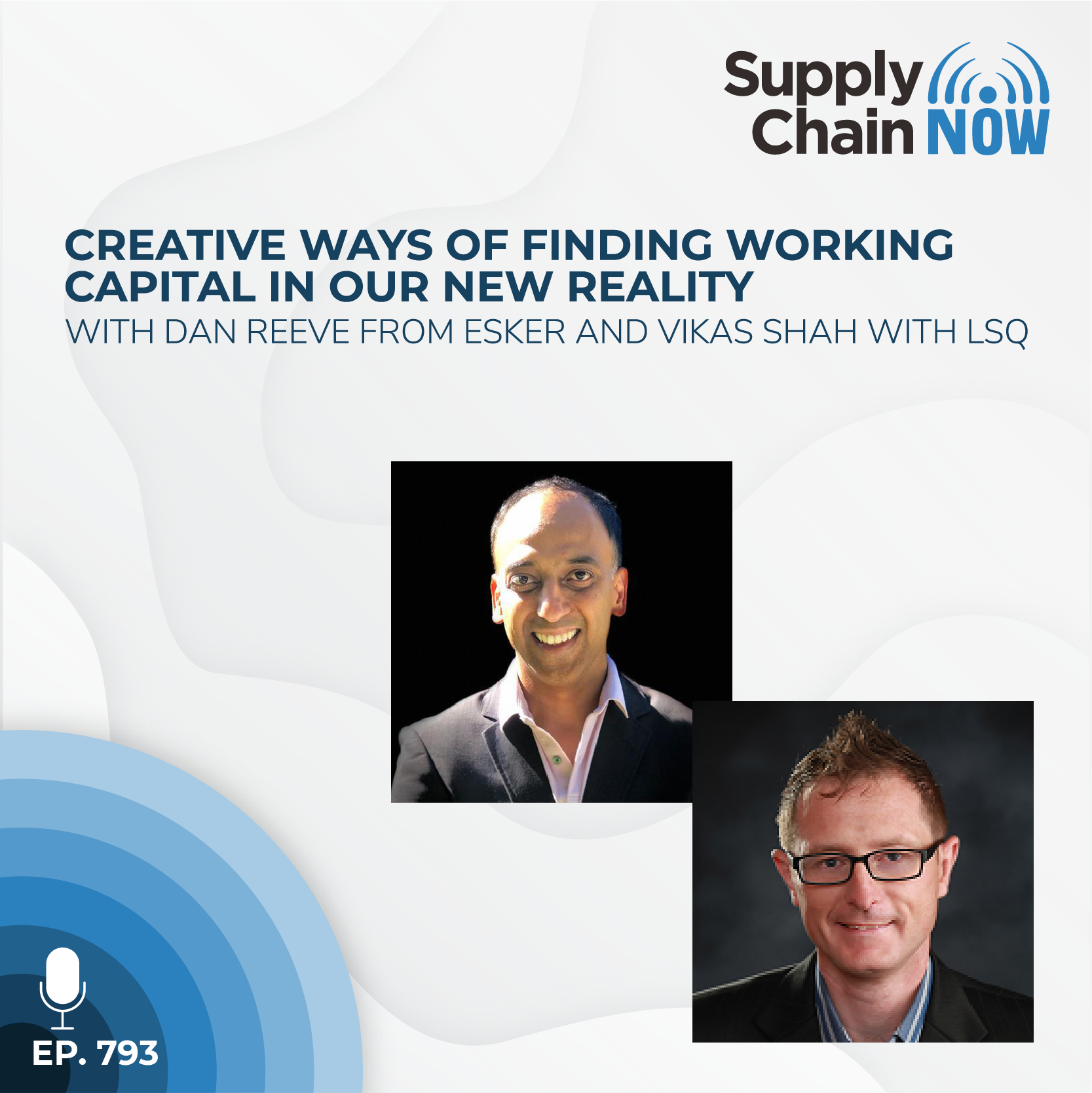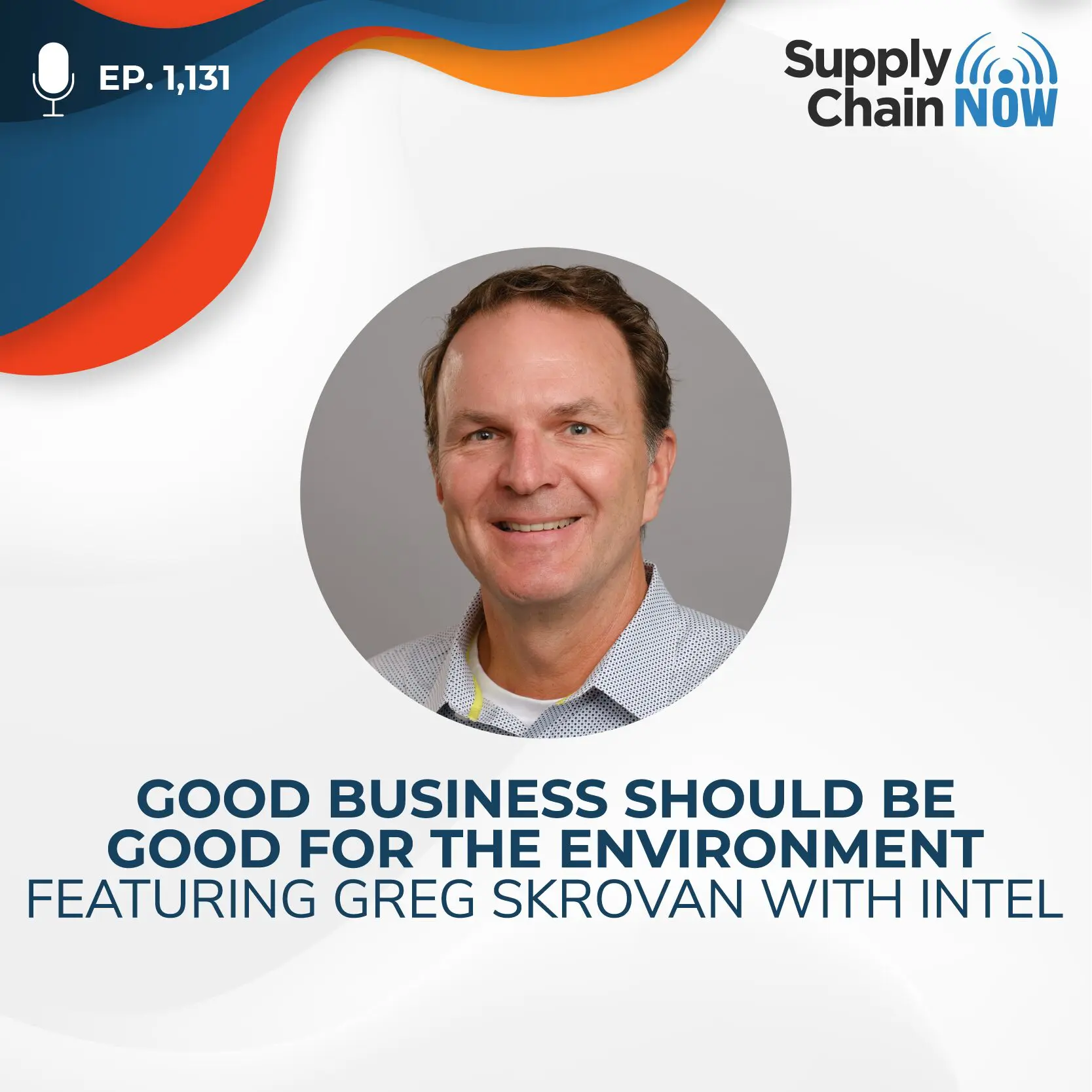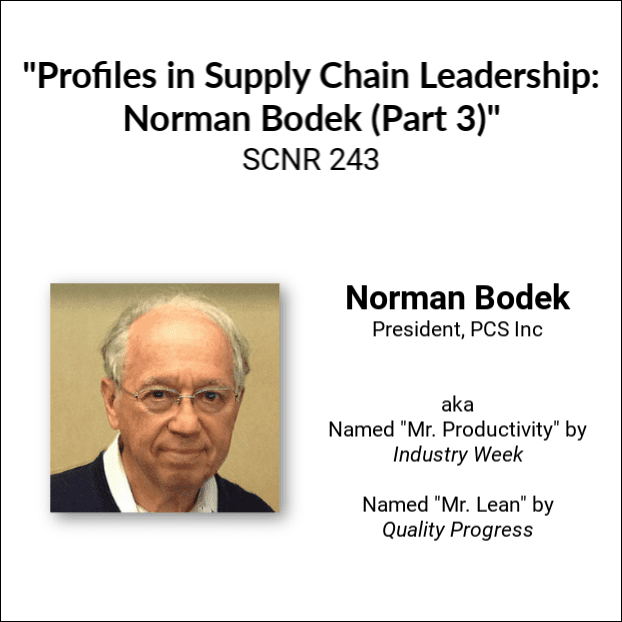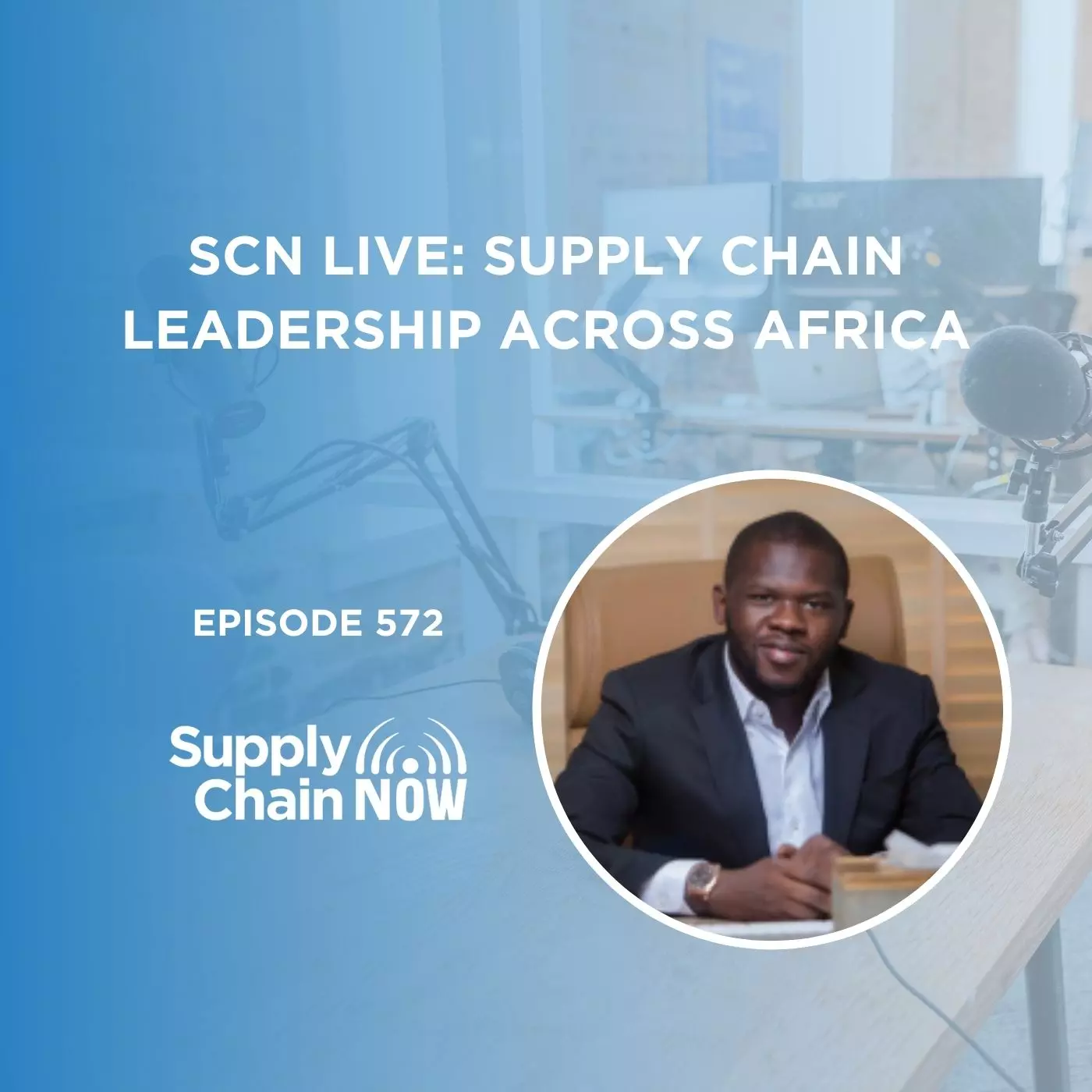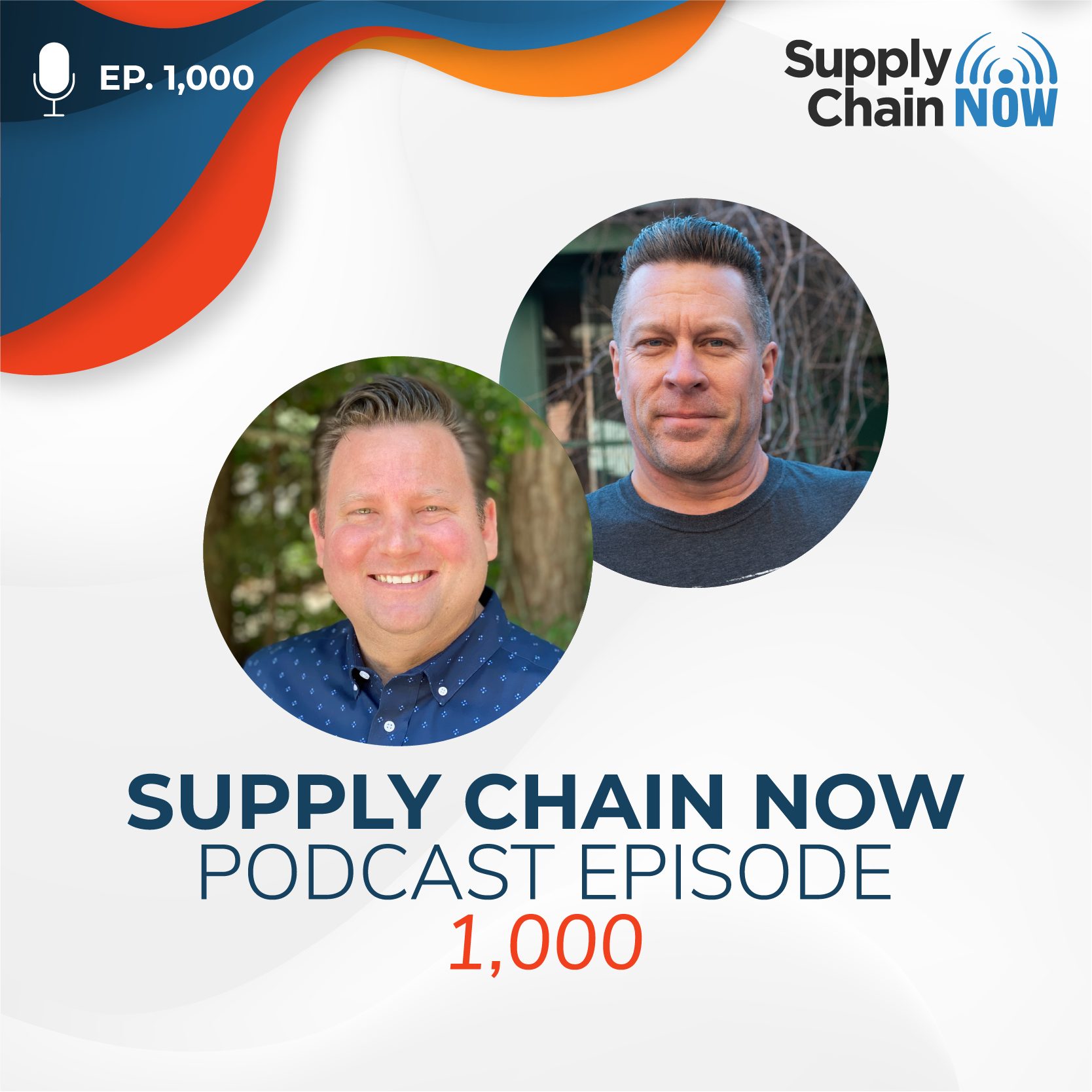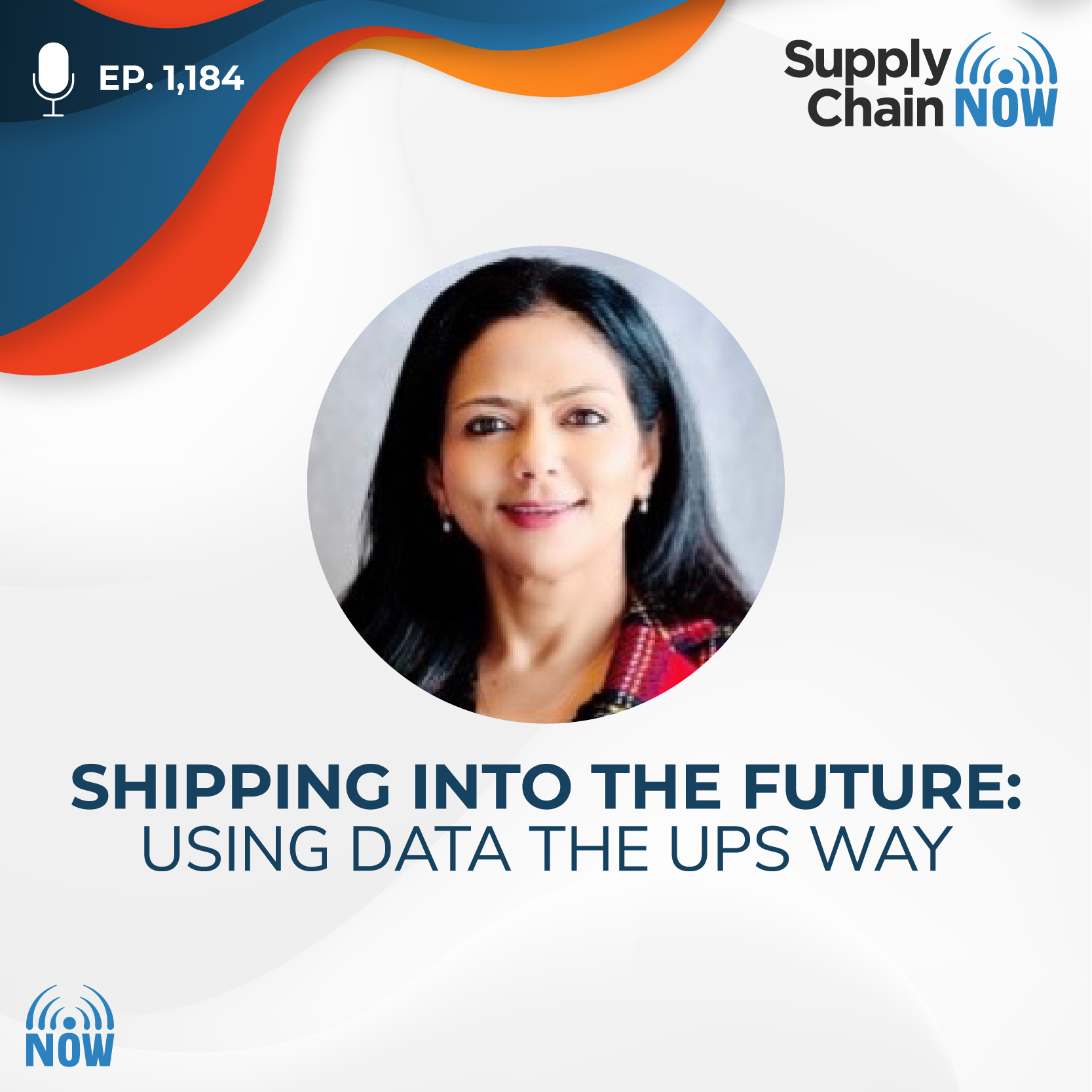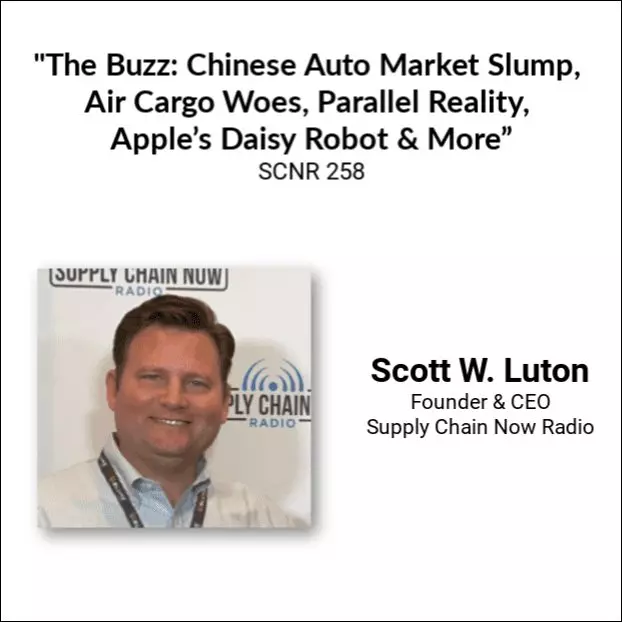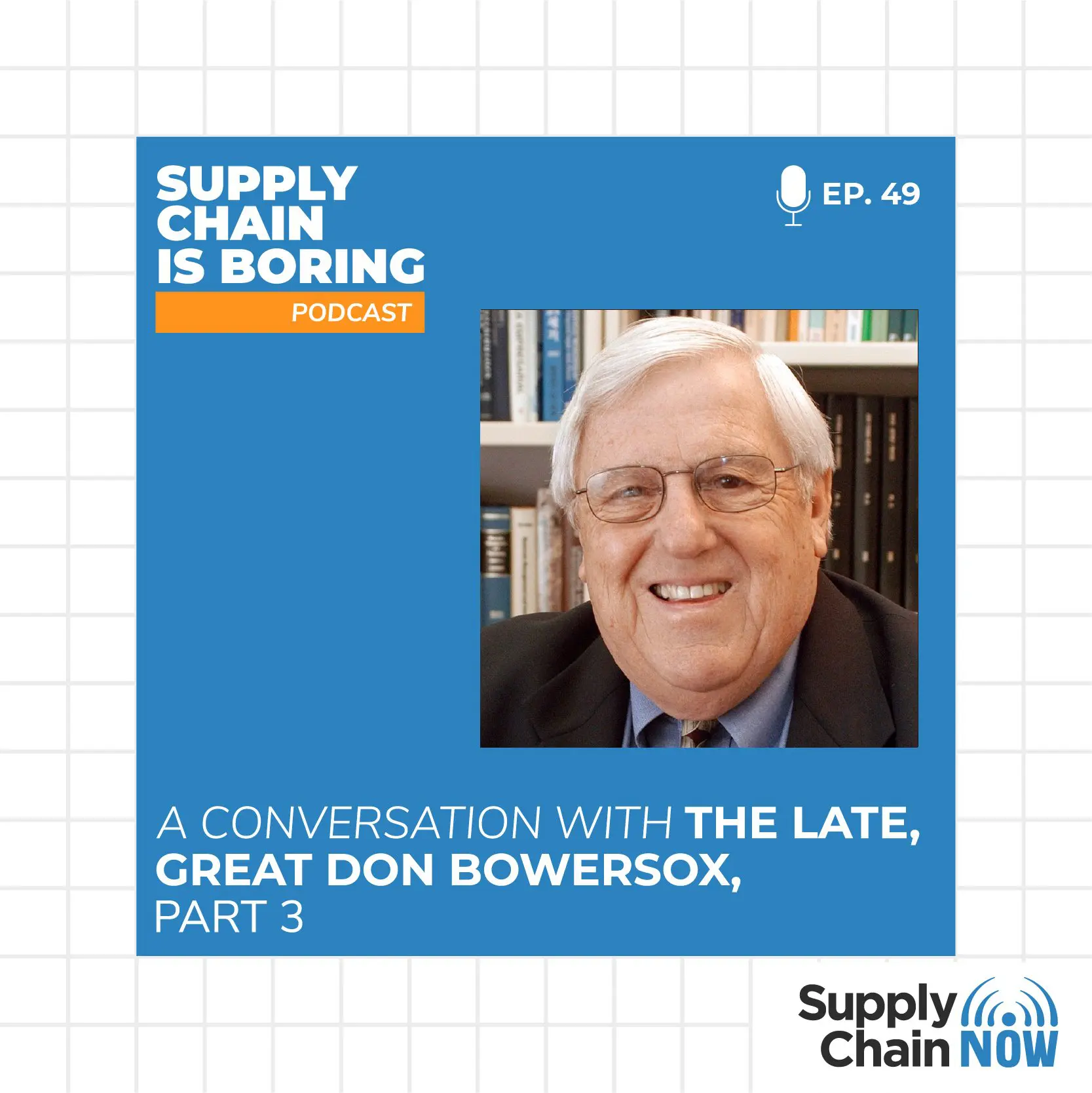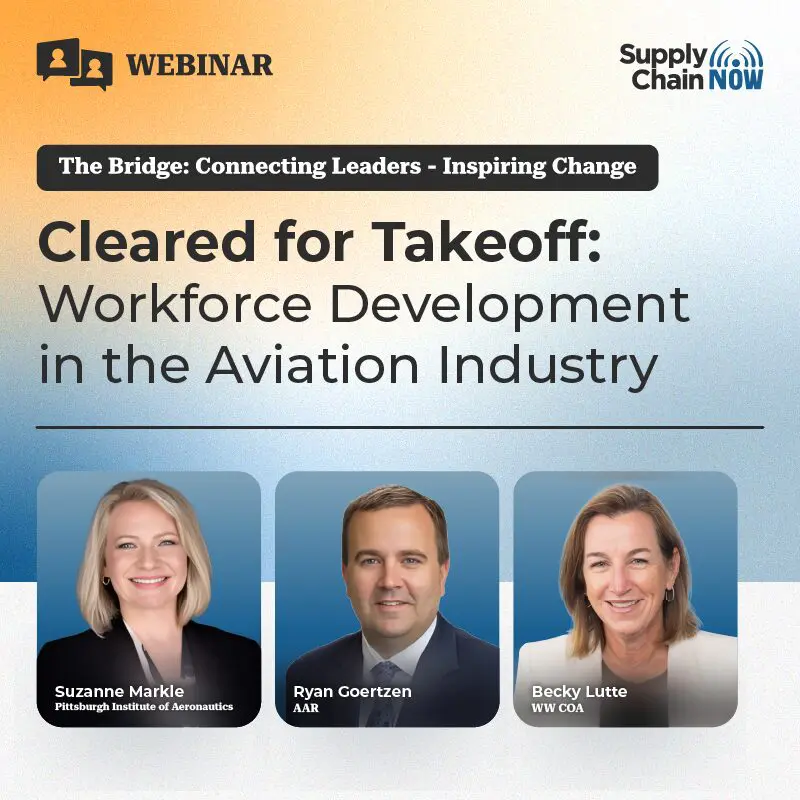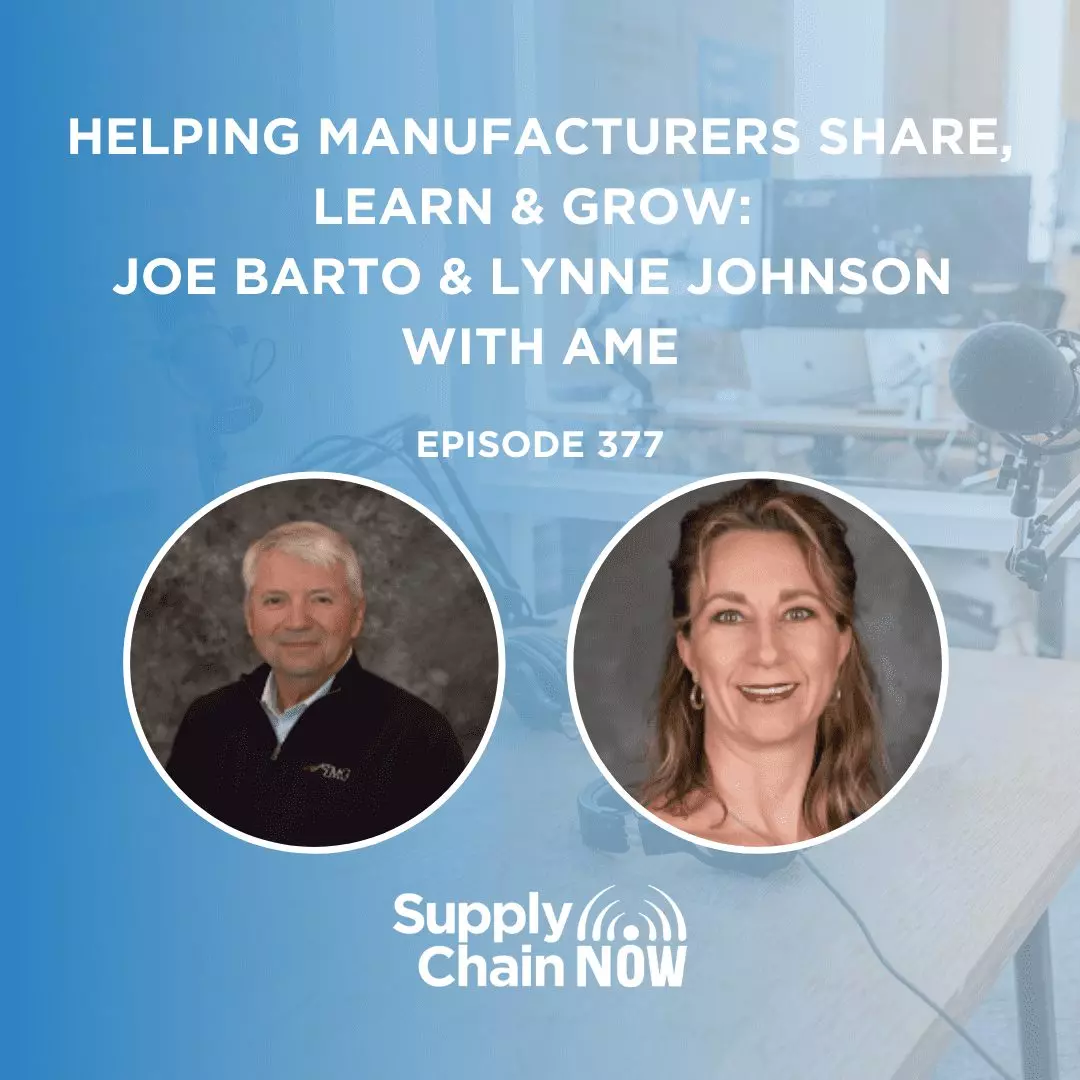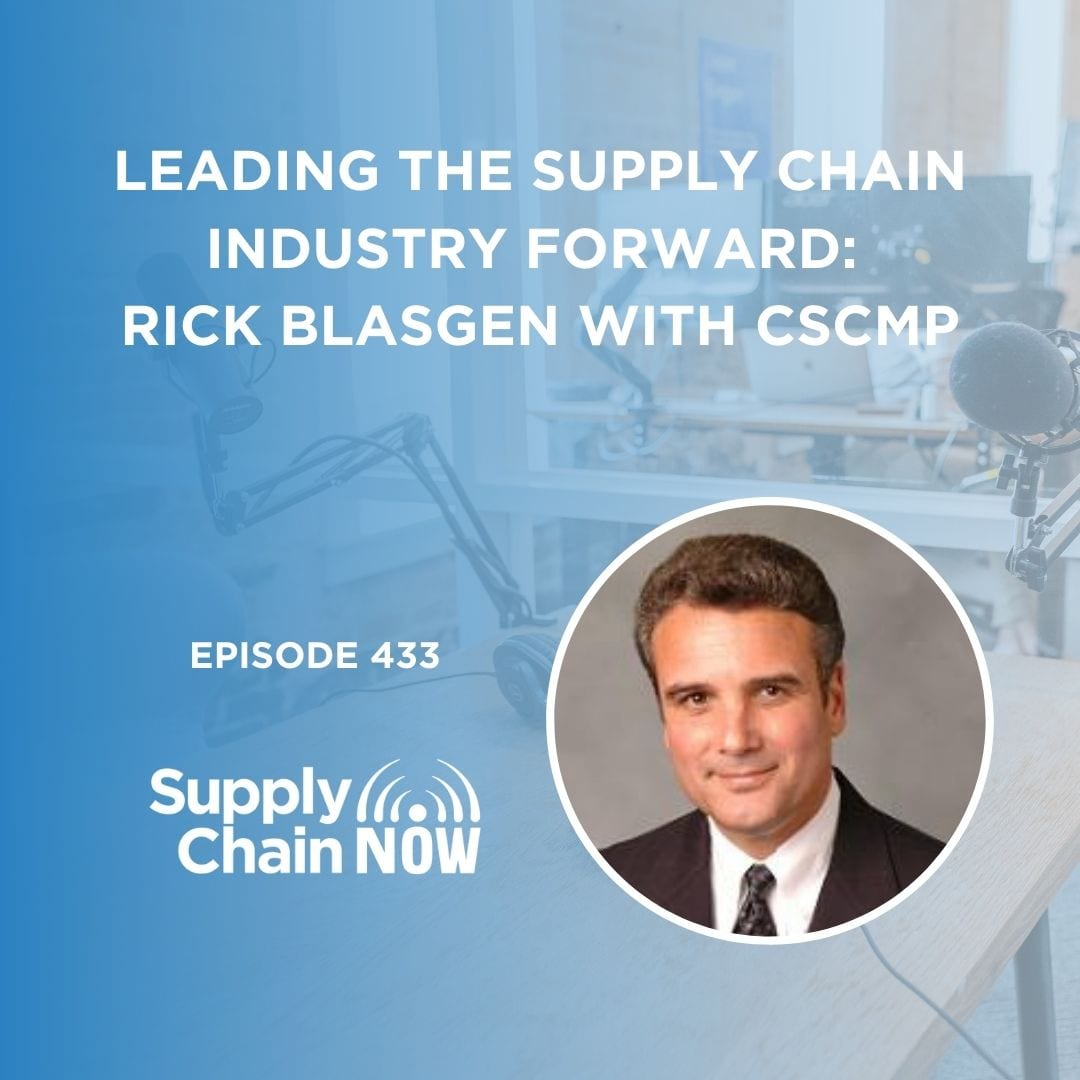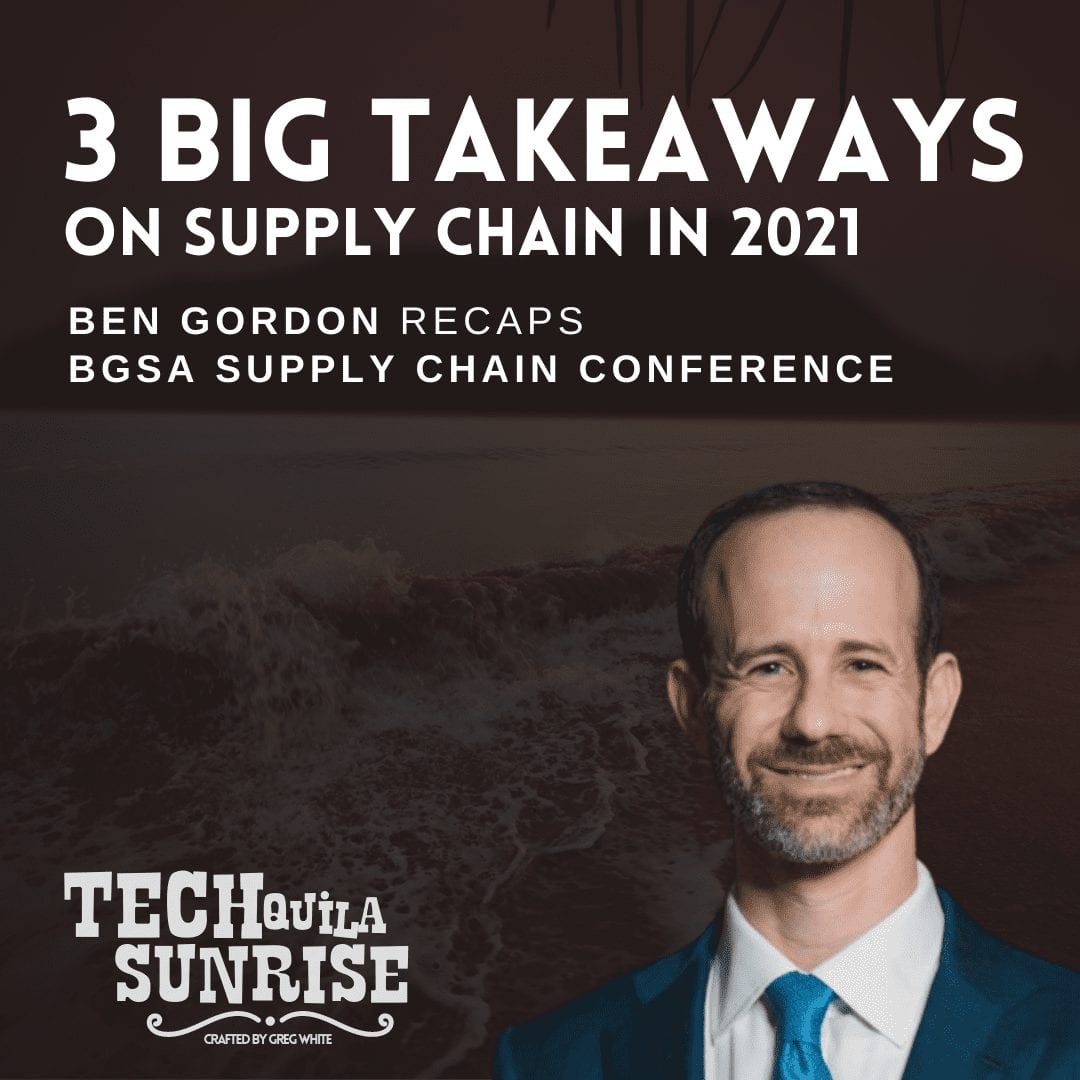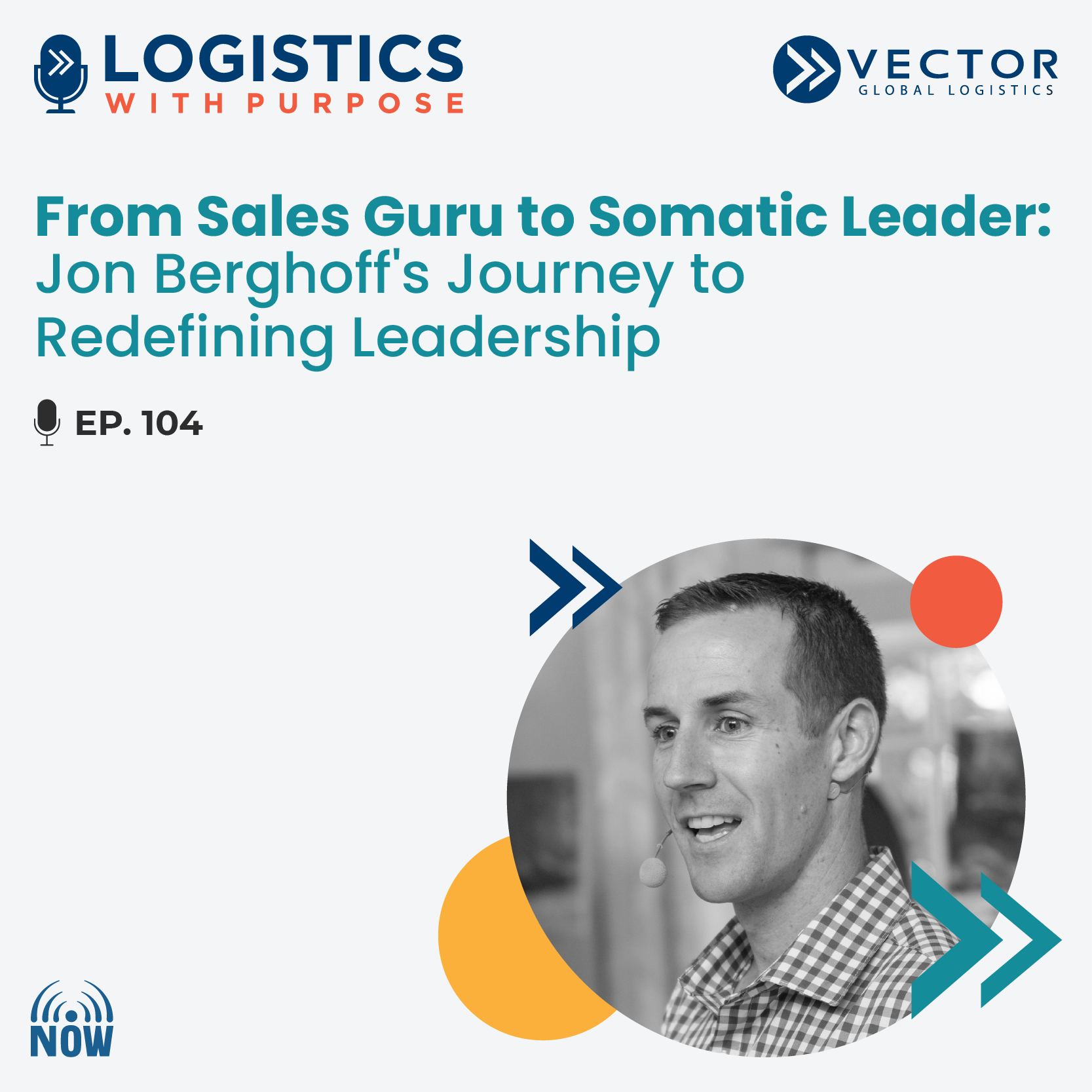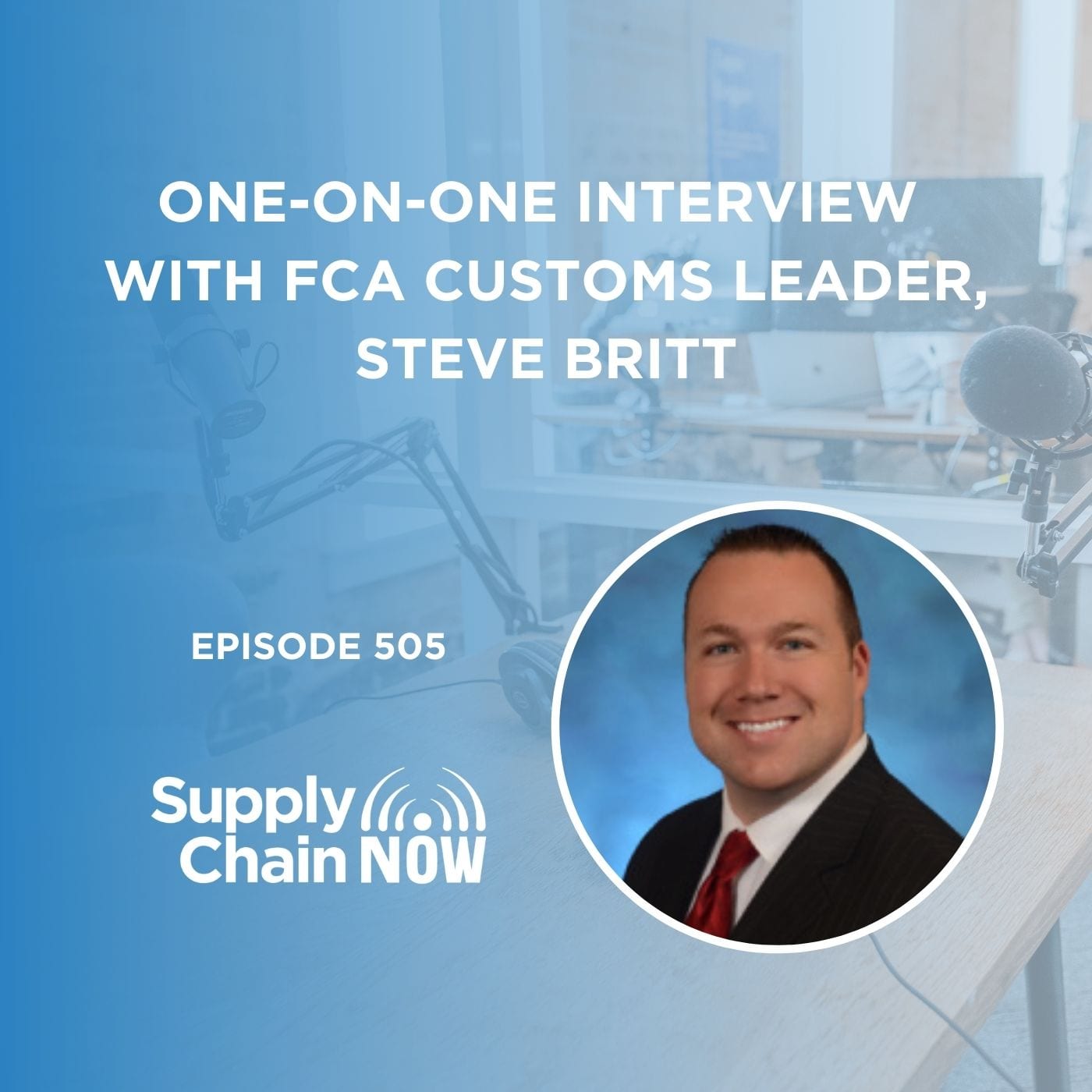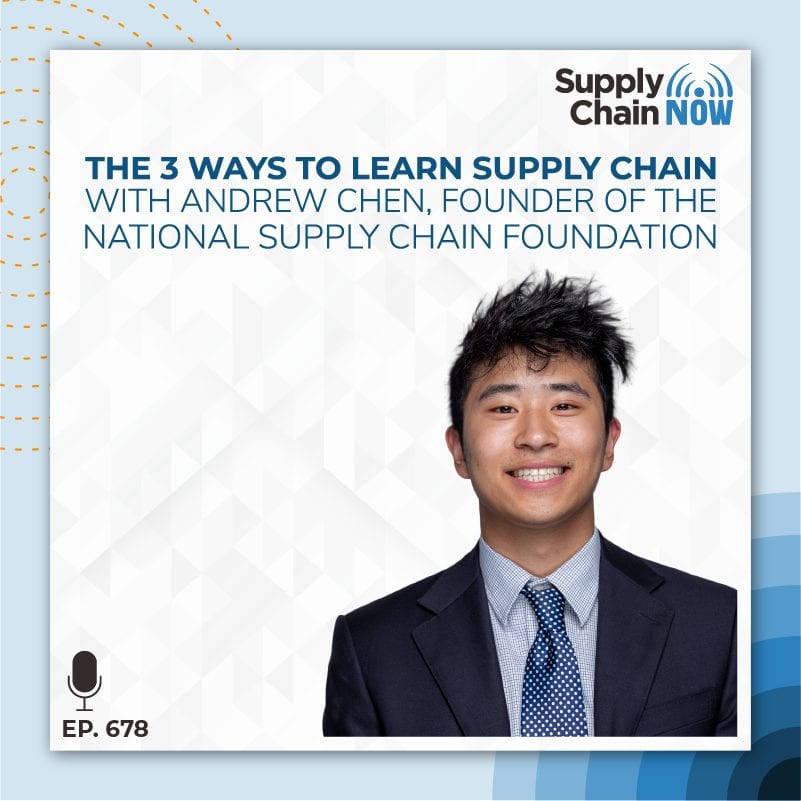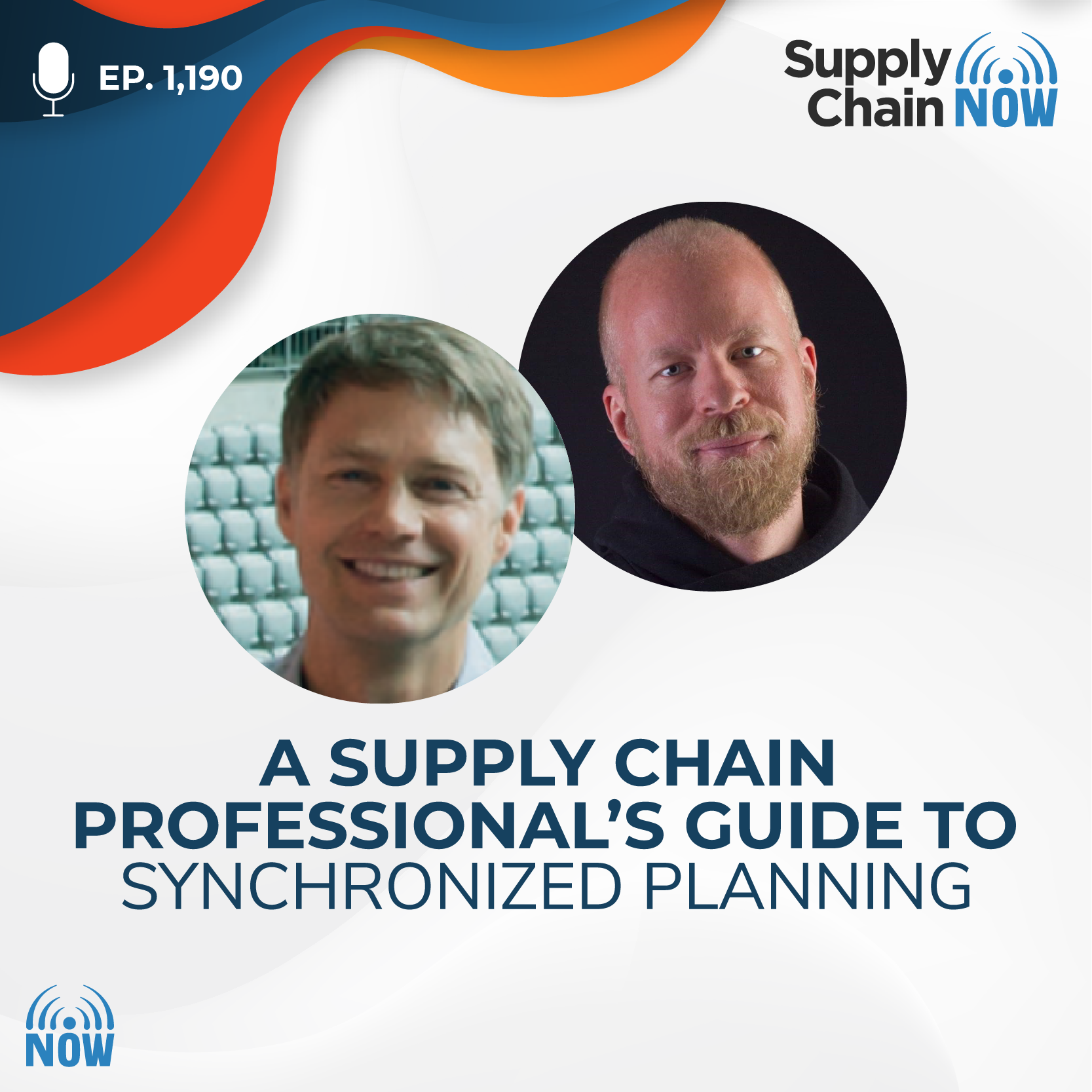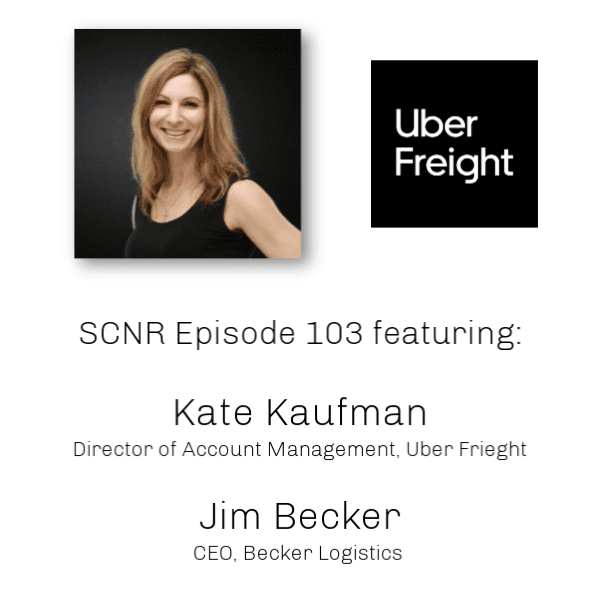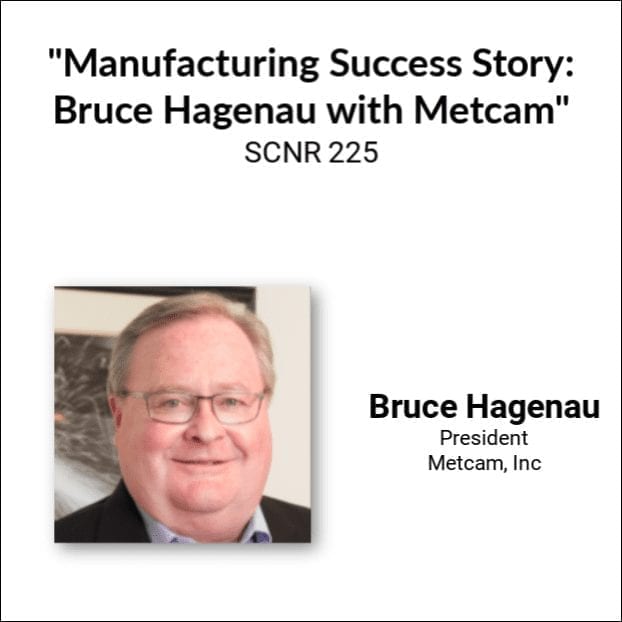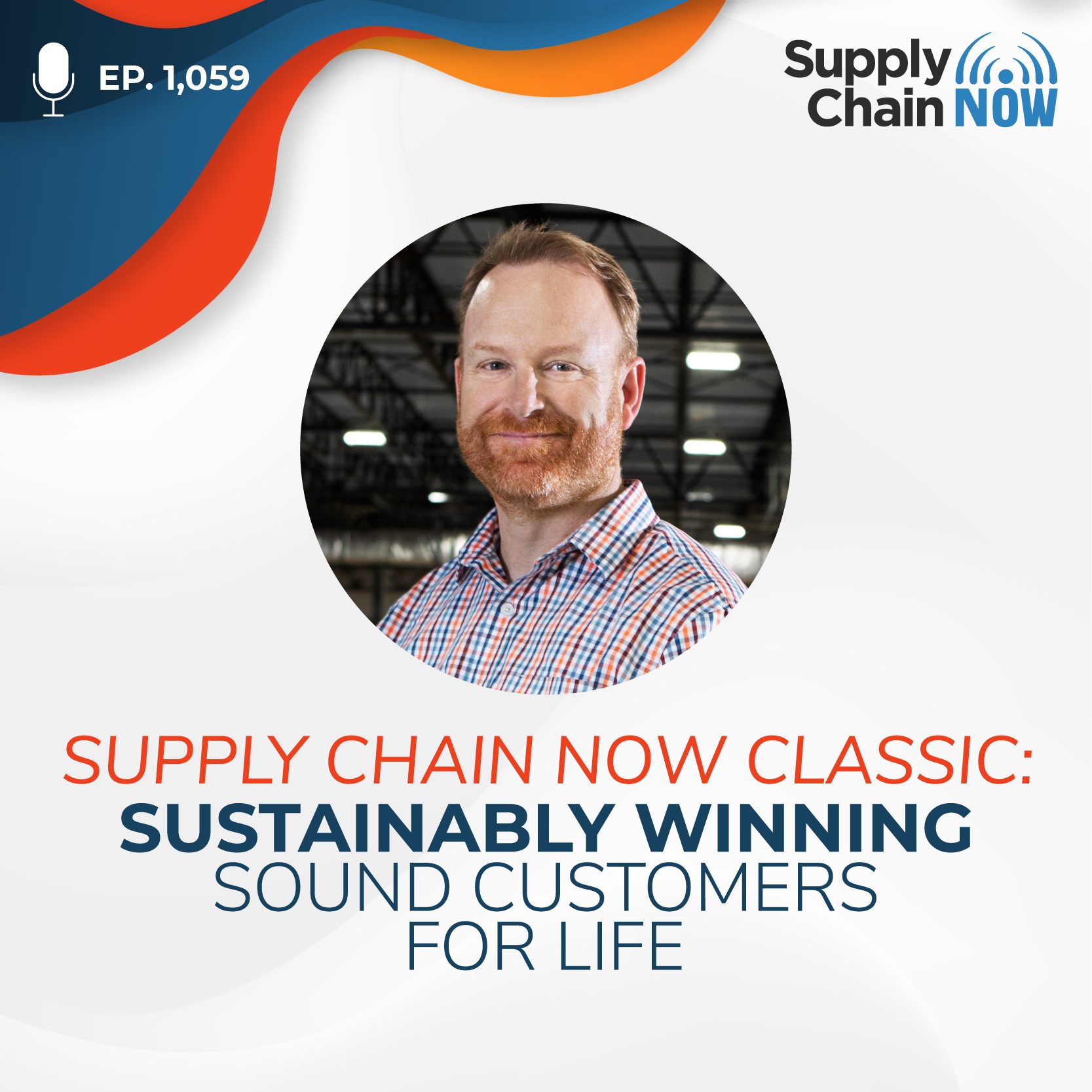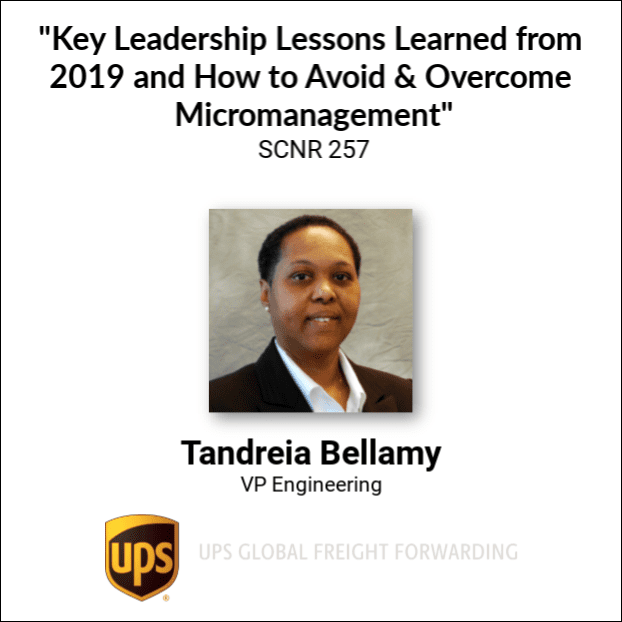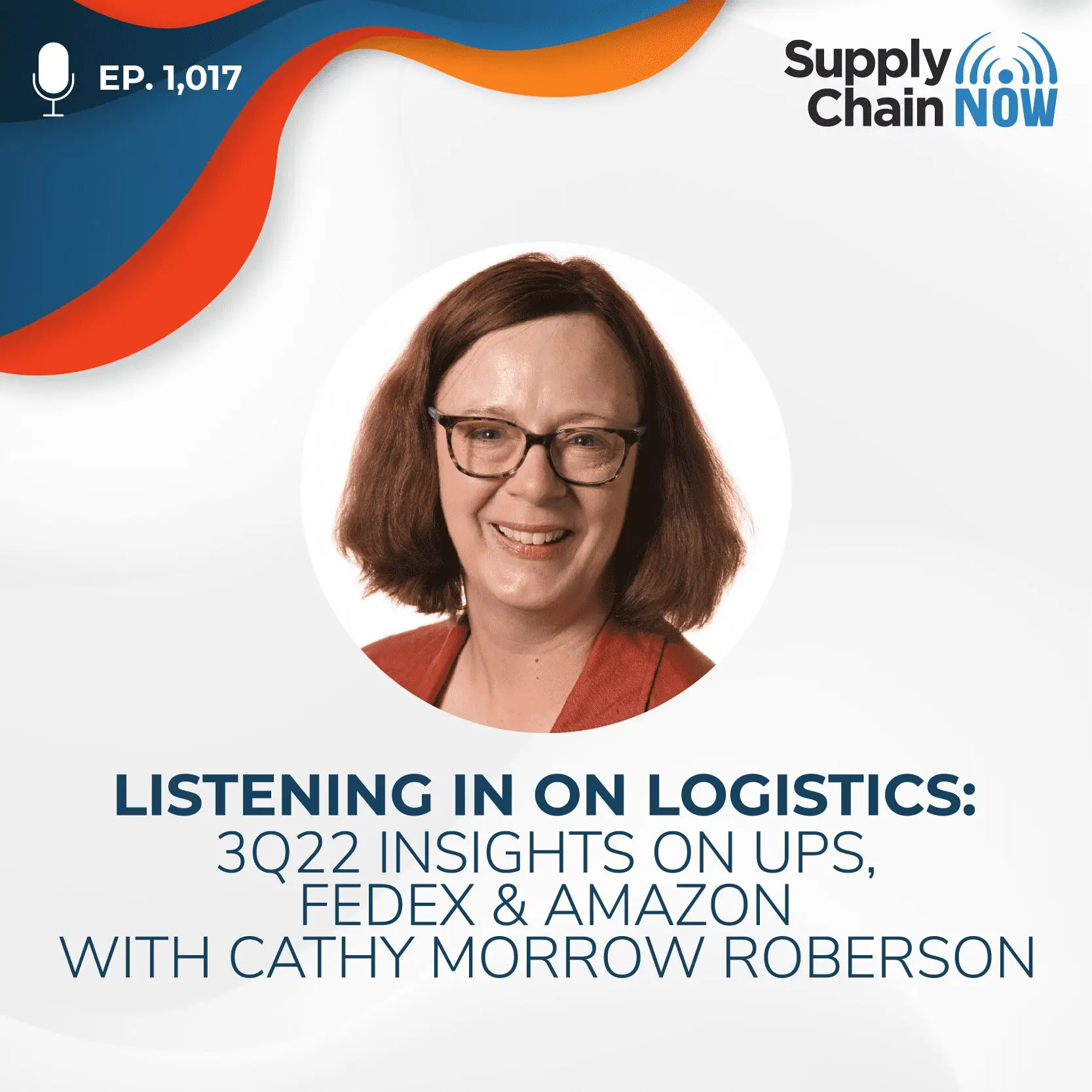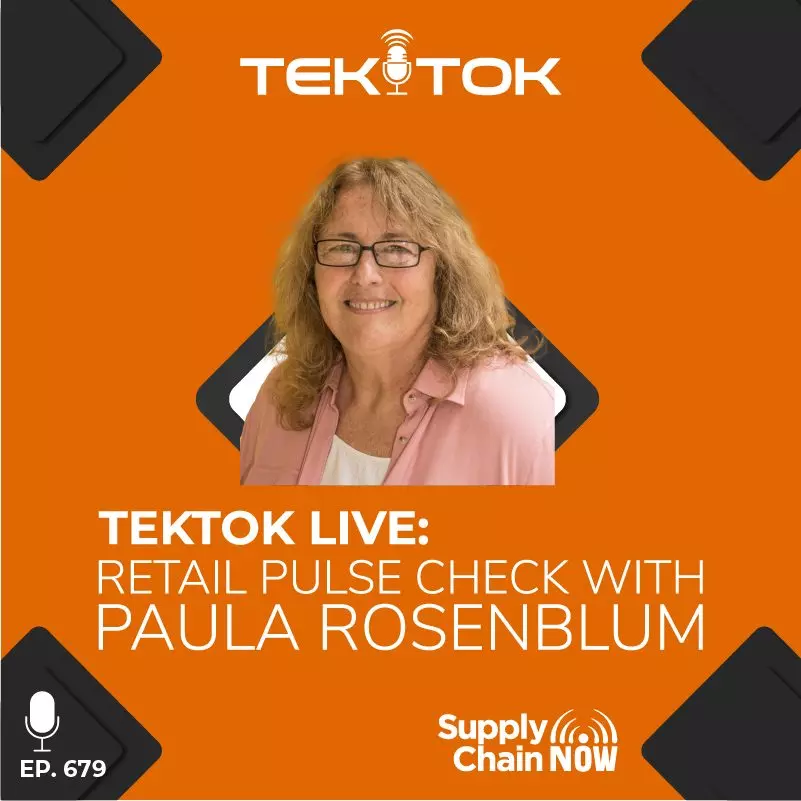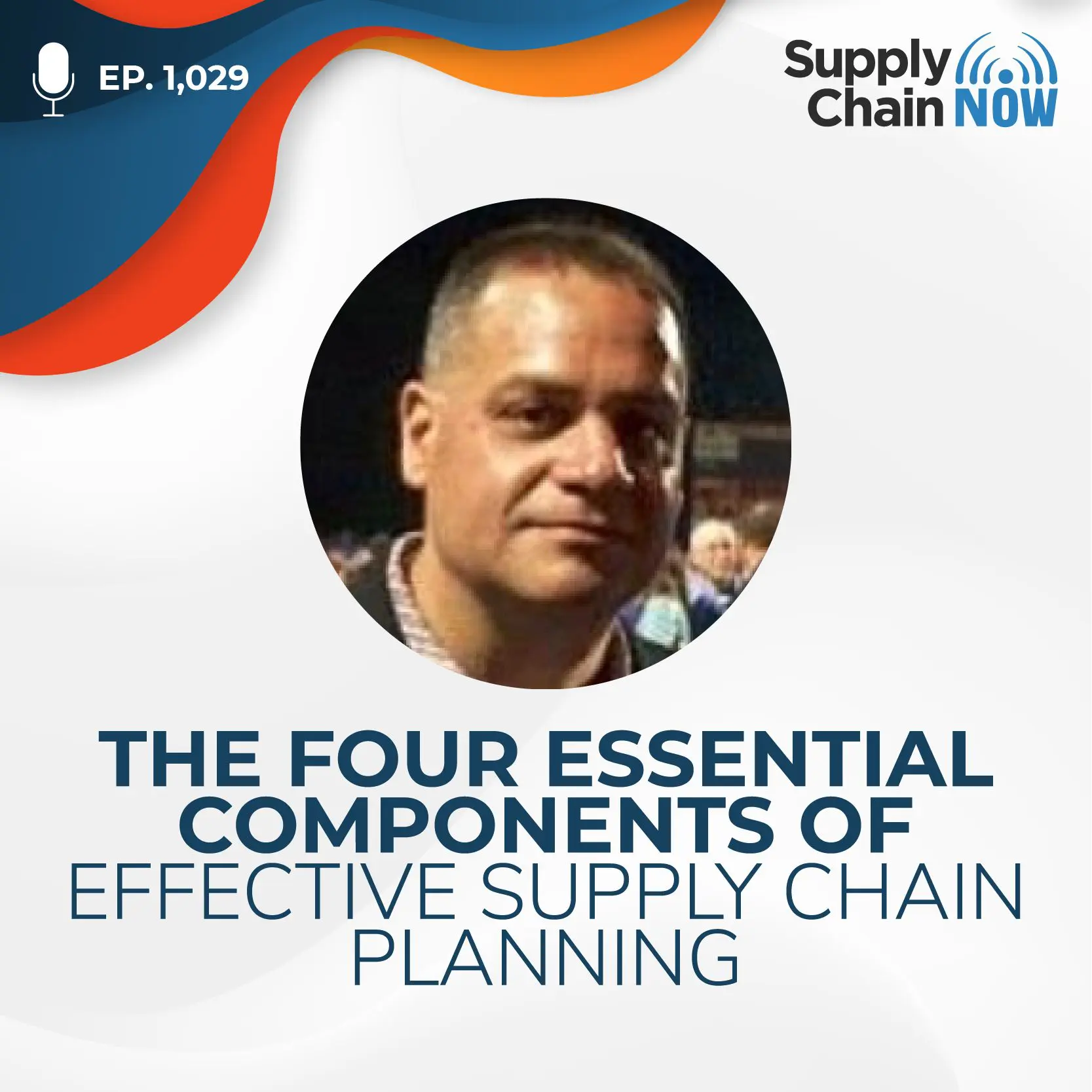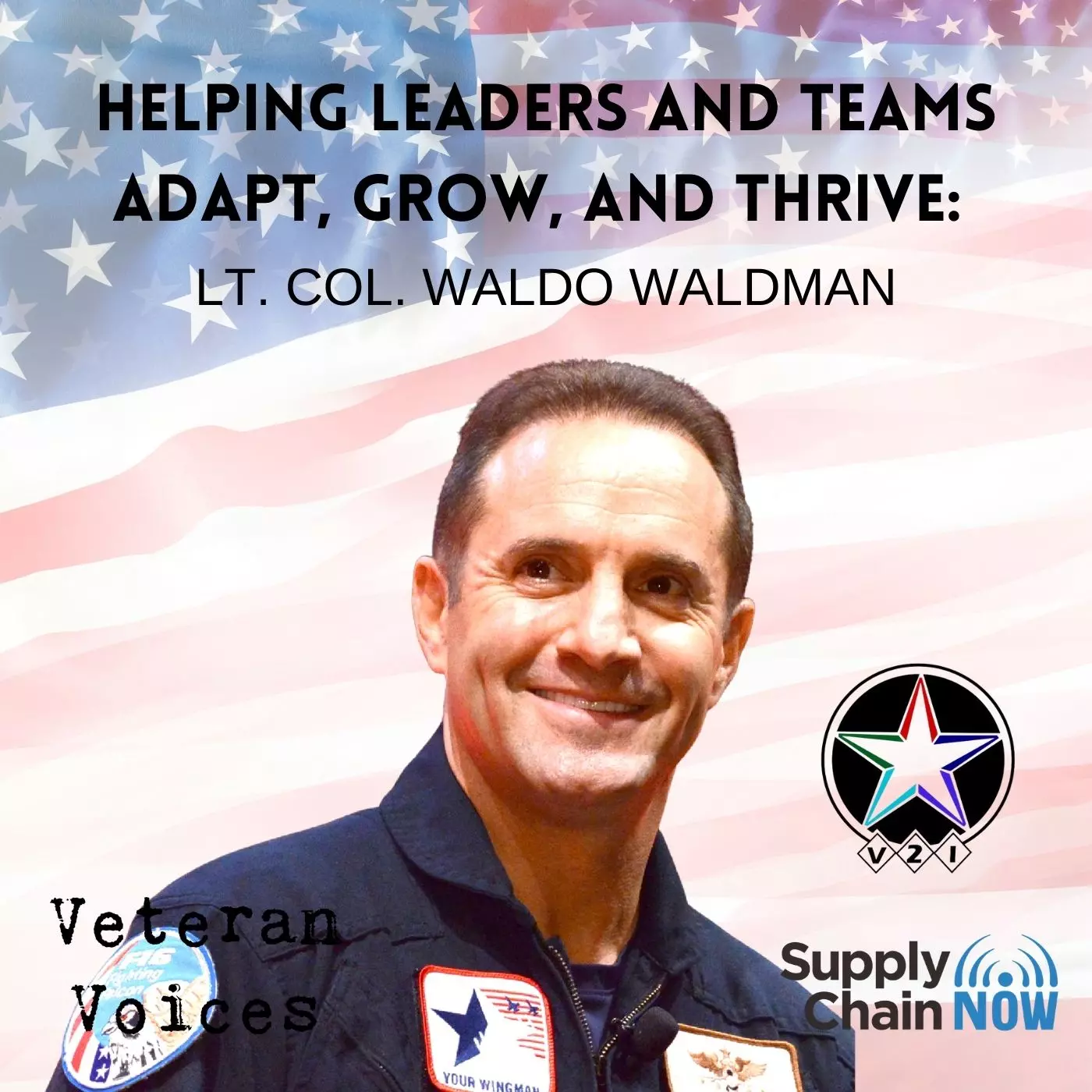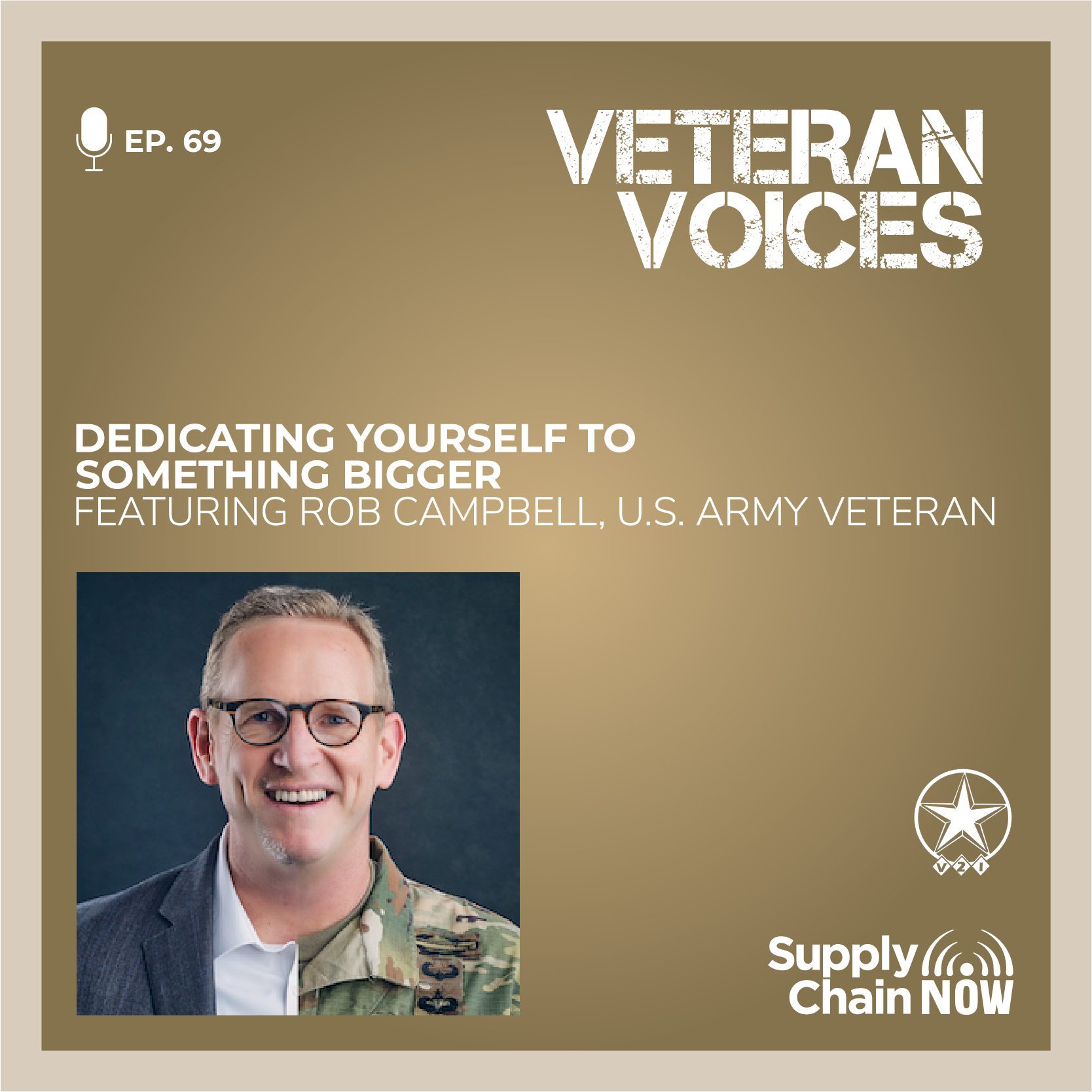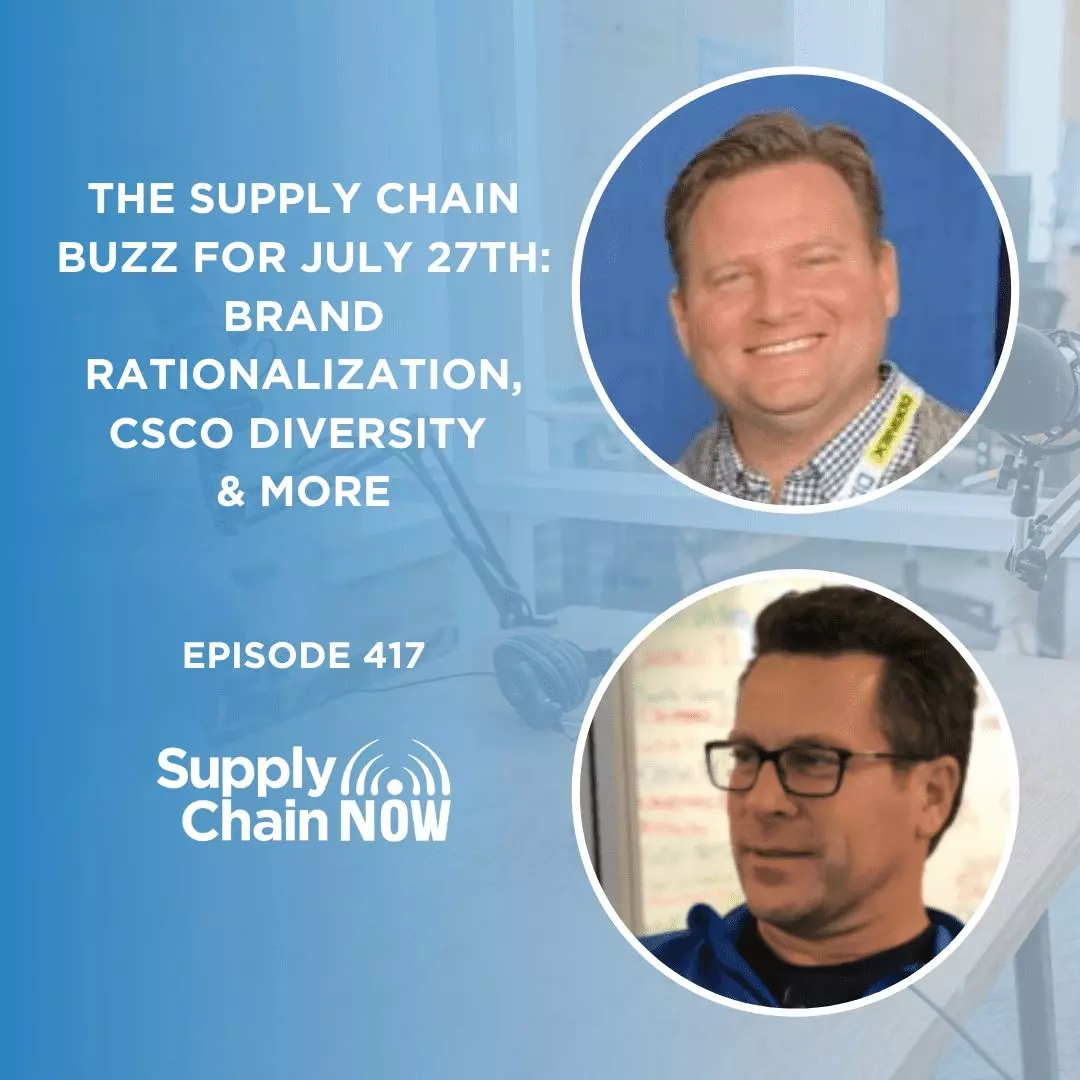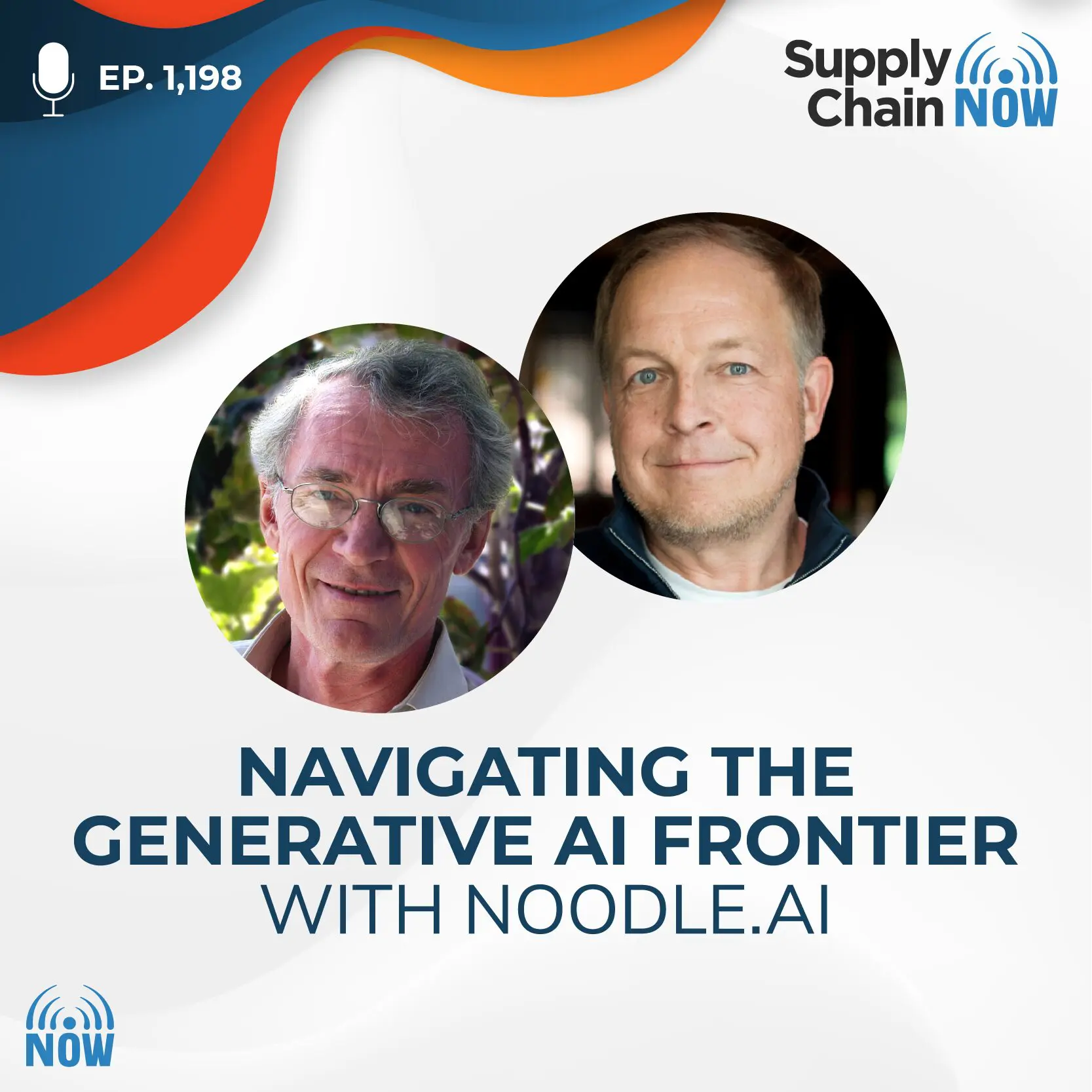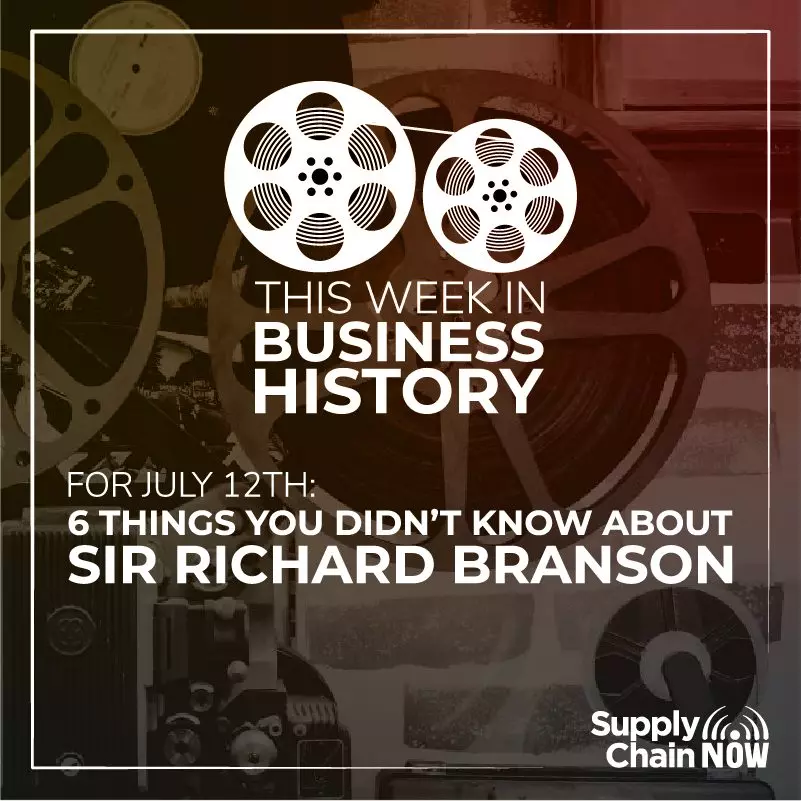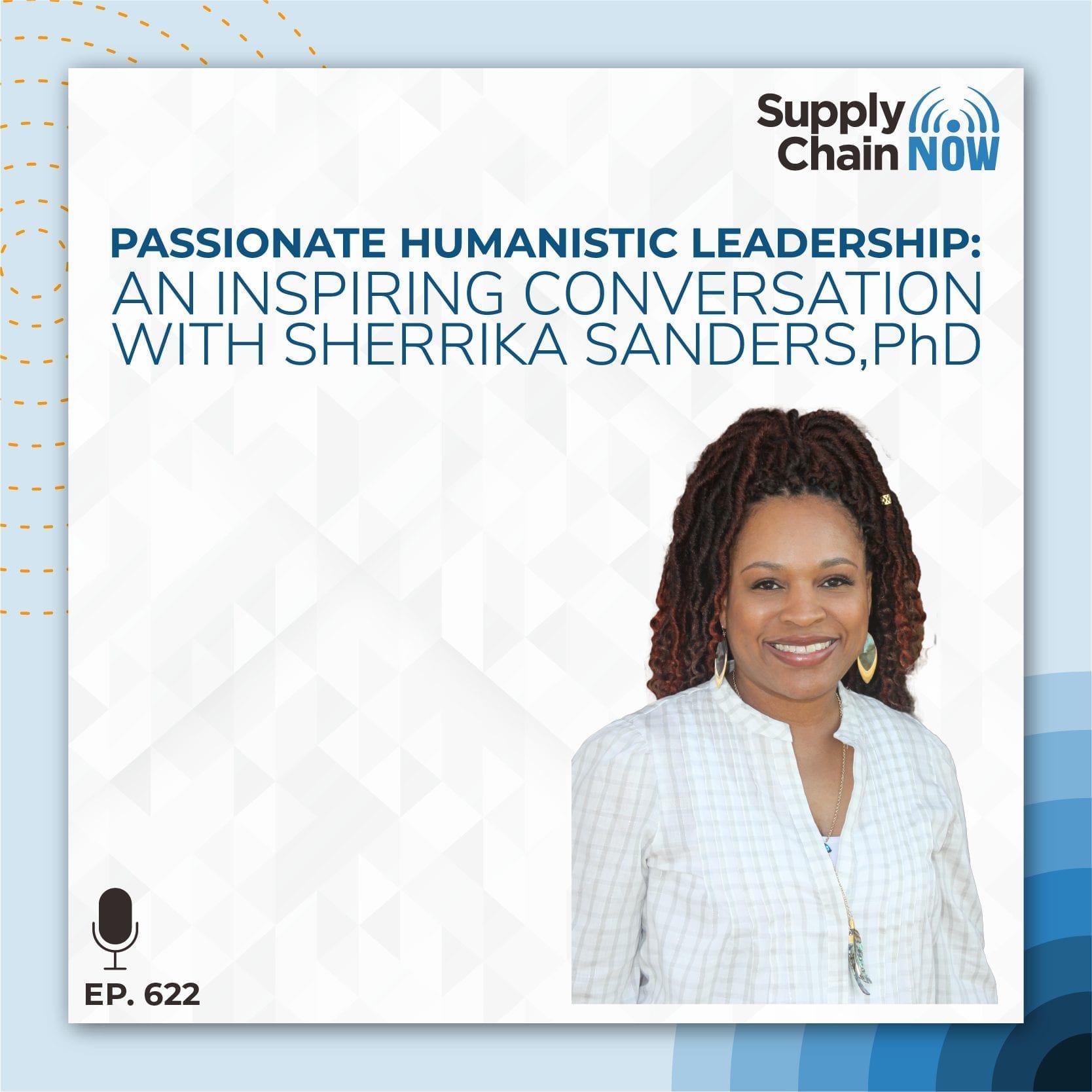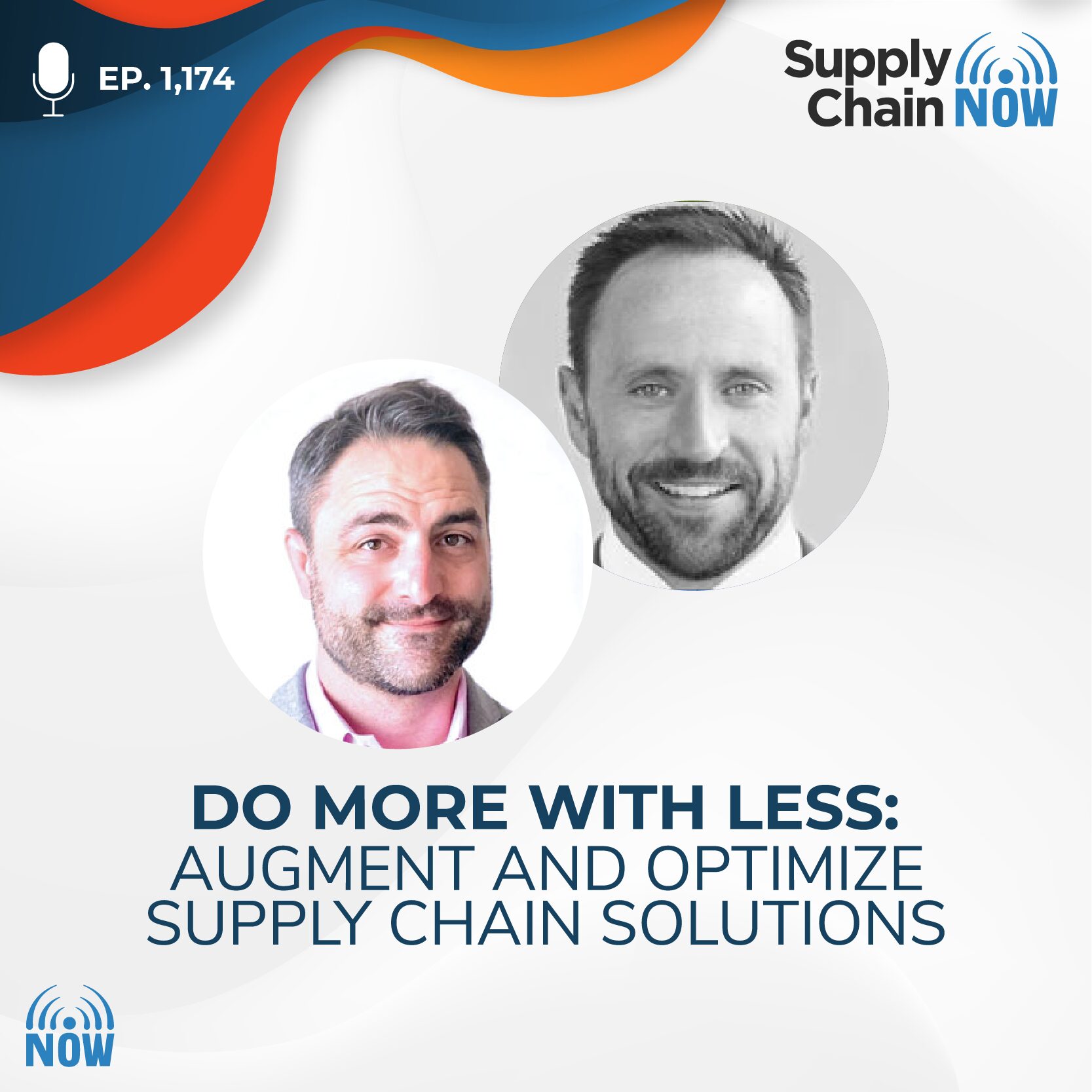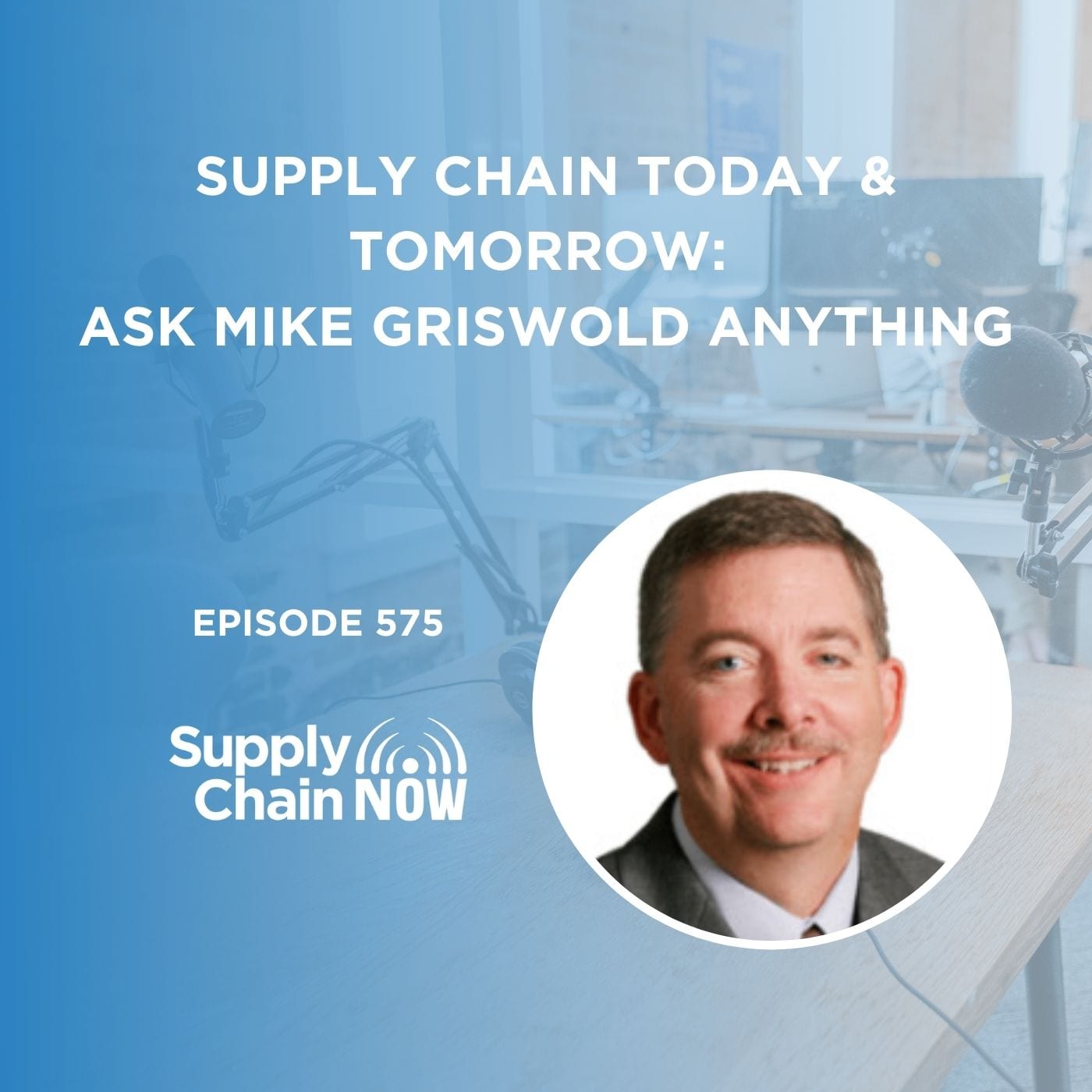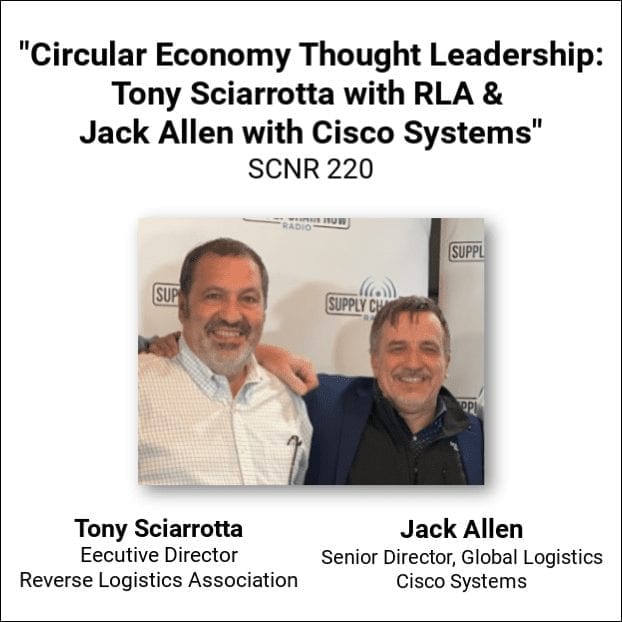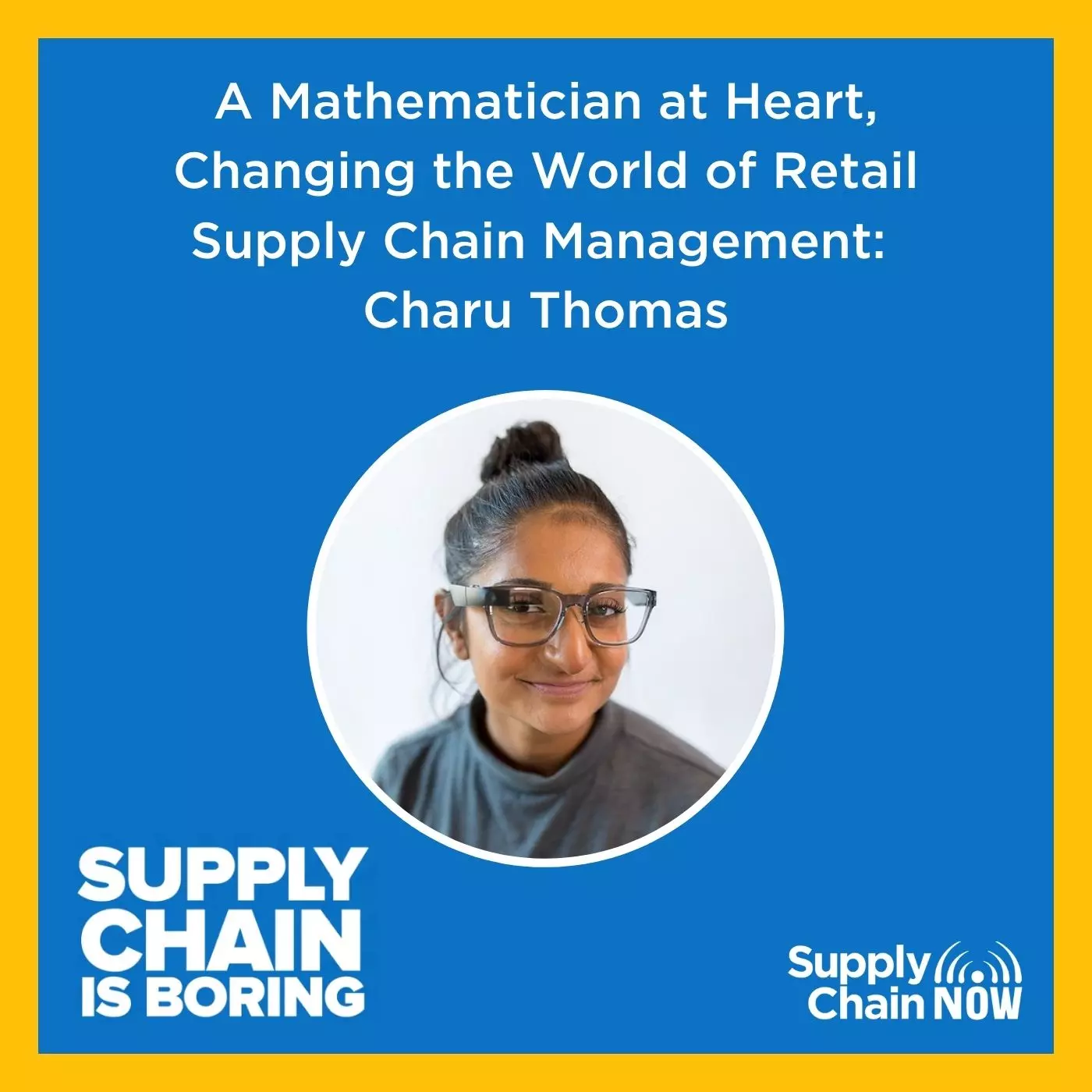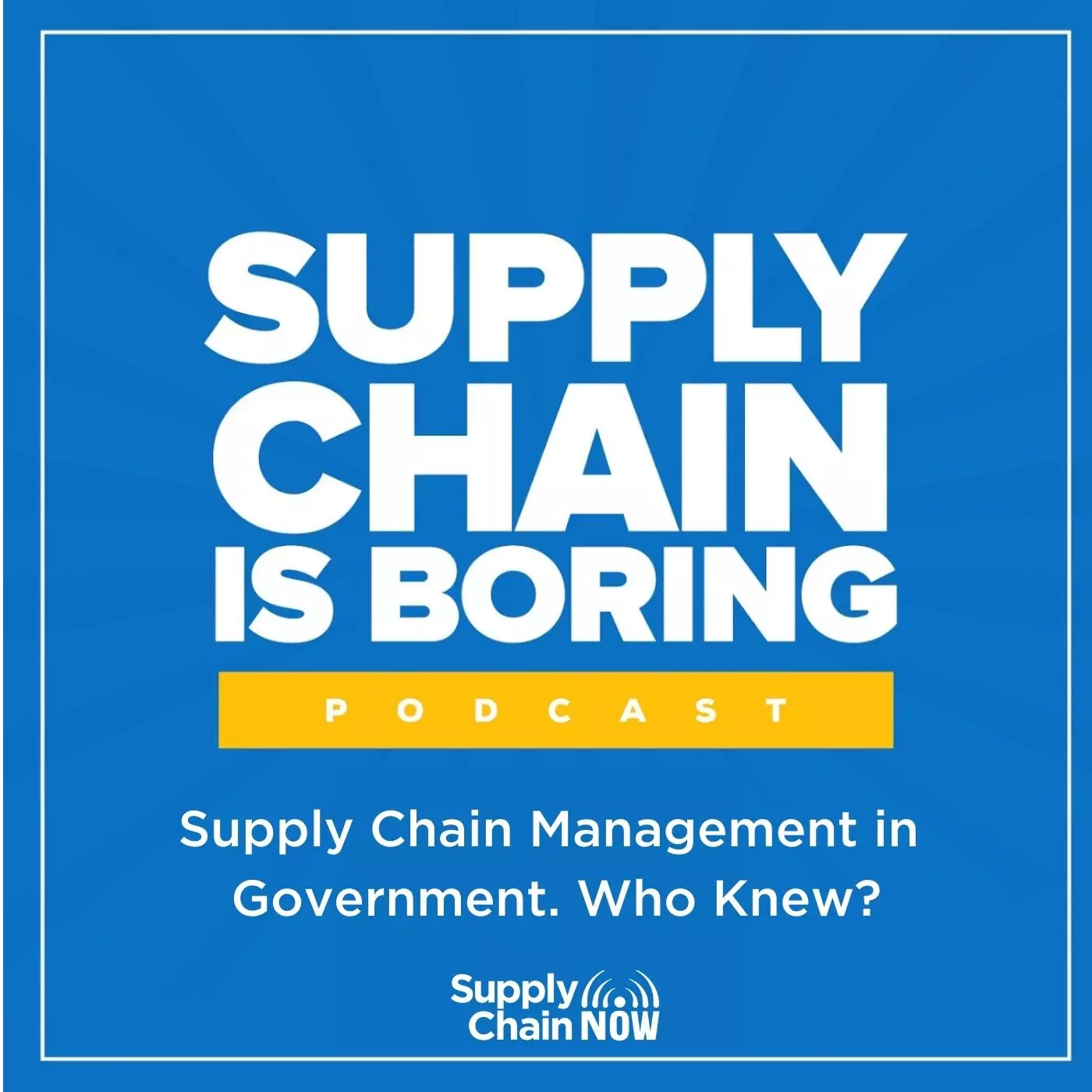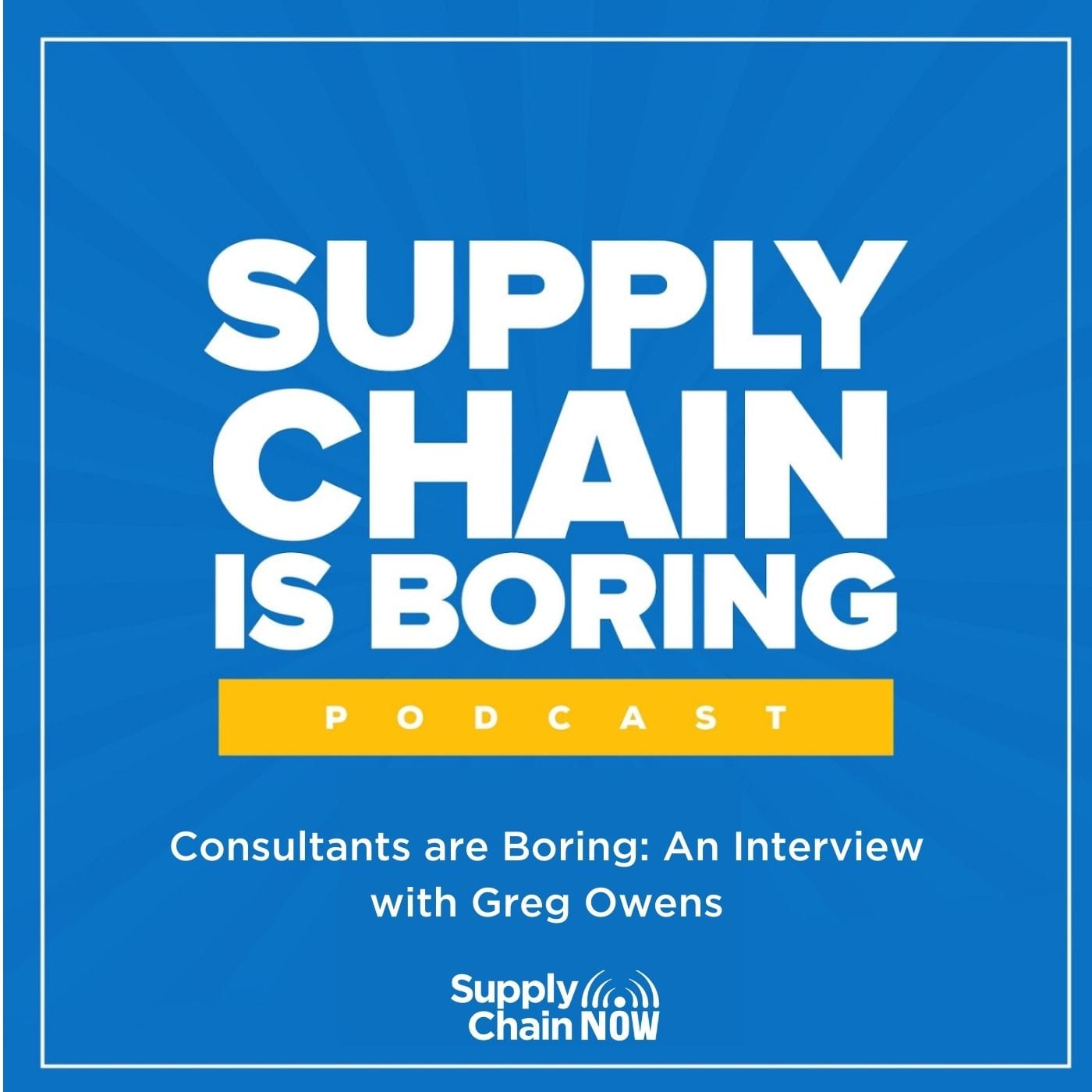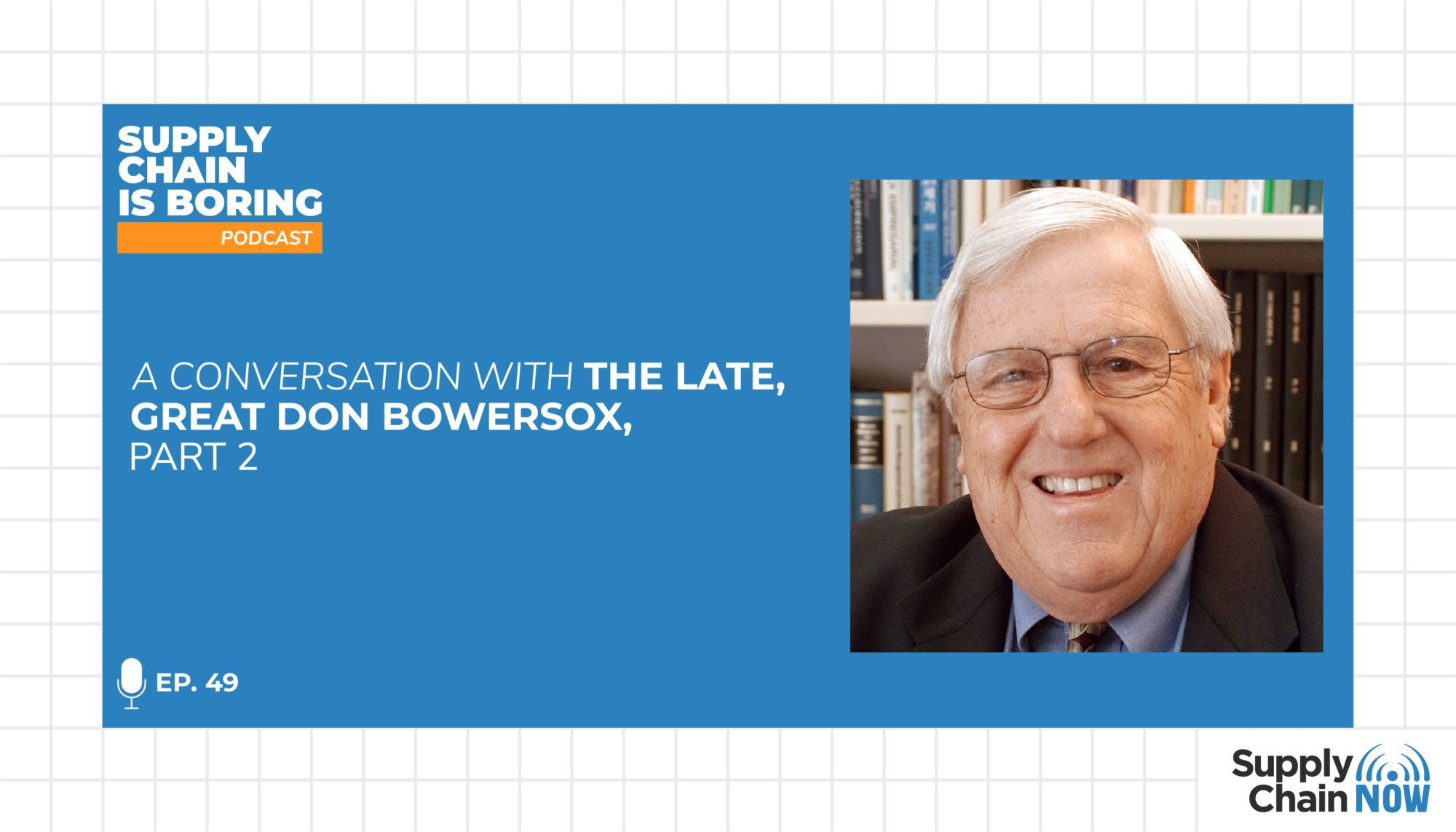
Episode Summary
James R. Stock is a University of South Florida Distinguished University Professor and Frank Harvey Endowed Professor of Marketing. He has interviewed many of the greatest minds in transportation logistics, a practice area we call supply chain management today. He shared those interviewed with Chris Barnes to be republished as part of the Supply Chain is Boring program.
In this interview, Stock speaks with Don Bowersox, one of the most well-known and influential supply chain management academics in the world, about the influencers along the path of his life’s journey and the advice he would give new Ph.D.’s today if he could.
Listen in to learn more about this important thought leader in supply chain management.
Episode Transcript
Chris Barnes (00:06):
Hey, it’s Chris. The supply chain doctor and host of supply chain is boring. Over the years. I’ve interviewed some of the brightest minds and successful leaders in the world of supply chain management. In May, 2020. I sat down with Ken Ackerman to learn more about him, collect a little supply chain management history. After our discussion. Ken told me about a similar interview he had with Dr. James stock many years prior, and the related work Dr. Stock was doing in November, 2020. I was able to catch up with Dr. James stock to learn about his work as an academic in the field of transportation logistics. And now what we call supply chain manage ment Jim was well connected to many of the original academic thought leaders in the space. Jim did interviews with many of these original thought leaders and shared them with me. The list includes Ken Ackerman, Don Bauer, SOS James Hasket, bud littleand John Langley, Jr. Tom Menser, Tom SP and Daniel Ren To carry on the great work started by Dr. Jim stock. I’m dusting off these interviews and bringing them to you on supply chain is boring.
Dr. Jim Stock (01:14):
Now, Don changing course for just a moment, looking at, uh, the history aspect, uh, other than the present time, what historical period or era would you like to have lived in?
Donald Bowersox (01:27):
What I’d like to really be able to live is in the decades right out ahead of us, because it’s, during those decades, say the next, uh, 30 to 50 years that we are going to really face the most challenging problems. I think that we’ve ever faced in the history of civilization. I’d love to be part of that technology rich environment that we have out in front of us because, uh, people in our field are gonna make a real difference.
Dr. Jim Stock (02:00):
Mm-hmm <affirmative> if you could meet any historical person, uh, of the past or present, who would that be? And there could be more than one perhaps.
Donald Bowersox (02:12):
Yeah, I, um, boy, that’s a tough question. There are many people, but I, I would like to be able to sit and talk to George Patton, uh, like we’re talking right now. Uh, because I think that the, the true story of Patton has never really been told. And, uh, uh, there were certain characteristics of, uh, of his leadership style that, uh, that I would enjoy pursuing further. I think he had most of the people fool most of the time, but I’ve been intrigued by him. I’ve read a lot about him. And, uh, uh, there are many other people, but you said one,
Dr. Jim Stock (02:57):
Well, certainly pat knew a lot of military history, which, uh, did him well and
Donald Bowersox (03:01):
His and combats. And he had sort of, uh, a sense of, uh, of, uh, commitment to, to the images of achievement that he, he was able to visualize and then feel almost a, uh, an ordained right to proceed for them, which to me, uh, was a passion for that few people could deny the worst thing that ever happened was making the movie patent. Cuz I think it told the wrong story about pat.
Dr. Jim Stock (03:34):
How do you hope that people will remember you in the future as they look back upon the life of Don power socks, what will they remember about you?
Donald Bowersox (03:46):
Well, I think for people that don’t know me very well, what will come to mind will be the work that’s been done in the evolution of physical distribution, to logistics, to supply chain. And I think they’ll, uh, they’ll see me in that context and uh, hopefully feel like that there’s been a contribution made for people that do know me. Uh, I think they will. I hope they will remember me more for, as a person who care about a lot of things that weren’t just things that of my own best interest, but anybody that stays in academia for 40 years has got to like students and like being around them and working with them. And I’ve just got some, some people that have done wonderful things in life that I have small part in, in their early development. And, and I guess, uh, that stands out high. And we like to think about the PhD students and, and there are some fantastic ones. You mentioned a few earlier, there are many others mm-hmm <affirmative>, uh, but there’s also the people that went in business and there’s also the people that, that didn’t go into supply chain, uh, but went into other things and became physicians. And when you teach undergraduate, you teach a lot of people and mm-hmm <affirmative>. And, uh, I think I’d like to think those people remember as somebody that, that made time most of the time.
Dr. Jim Stock (05:18):
Now we know that you didn’t work all the time. You probably did other things. Uh, do you have some interest, uh, in your spare time hobbies, things that you did outside of, uh, the workplace?
Donald Bowersox (05:30):
Well, I, um, I have a really pathetic golf game, which I totally enjoy. And I think the fact that I enjoy it so much, uh, actually makes it more as time goes on. Uh, so golf has been a lot of fun. I’ve been pretty active in sports. Uh, I like, uh, attending sports events and I’m, uh, you know, very, uh, close follower of, uh, of specific teams. And I’ve been a, I helped recruit and did a lot of work with Tom IZO at the Michigan state basketball program and have a great admiration for that form of, of true unselfish leadership that he, he is able to do, um, express with that team. And, uh, so I’m very, very interested in, uh, how they’re progressing. I read a lot. Uh, I, uh, I’m not, I just can’t get exciting, excited about browsing around the internet and I’m still writing and I have, uh, believe it or not given some thought to actually writing outside my field and, uh, have done some research on a, a story based in Australia, which sometime I see the, the light of day, which would be a novel. Okay. Uh, so we’ll see,
Dr. Jim Stock (06:55):
But it won’t be called a precipice.
Donald Bowersox (06:58):
I hope not. <laugh> I hope
Dr. Jim Stock (06:59):
Not.
Donald Bowersox (07:00):
Although we wrote our version of that nickel, how check and I, we wrote, uh, the title of the book is, uh, start pulling your chain leading responsive supply chain transformation. That book will be out in January
Dr. Jim Stock (07:14):
And as you were growing up and, uh, and really throughout your life, did religion have a, a place in your life and, uh, an impact on you in any way?
Donald Bowersox (07:23):
Sure. It really was my parents. Uh, my mother was a Catholic. My father was a Protestant, so I, uh, attended, uh, uh, catechism classes and was raised, uh, a Catholic and married a Protestant and left the Catholic church. And I now a member of the Presbyterian church and, uh, uh, my wife is very active in the church and, uh, and we, our regular attendees and enjoy it. It’s a very important part of life. Mm-hmm <affirmative> it’s moments of reflection. It’s where you learn to be humble. Mm-hmm <affirmative>,
Dr. Jim Stock (08:03):
As you look back at your life, what do you think are the main lessons that you’ve learned throughout those 40 years, both in academia, and then growing up before those 40 years began
Donald Bowersox (08:16):
Everything, every single thing you do in Penn act somebody in some way, you wanna make those impacts as positive as you can, but you can’t always control ’em. And so you’ve gotta understand fairness, and that’s where I think church can help you a great deal in religion to understand that as you impact people, uh, be honest, don’t, uh, don’t try to kid them. Don’t try to persuade them, uh, tell ’em the truth and the truth may hurt, but, uh, but there are general ways to tell the truth in harsh ways. And, uh, uh, I think just trying to, to, to keep everything as much as you can in the open and be an open person and laugh at yourself
Dr. Jim Stock (09:08):
Now, were there any turning points that, uh, you can look back to in your life that you say, well, those were significant in terms of having a present or future impact on where I ended up or things that I did, uh, personally and professionally?
Donald Bowersox (09:24):
Well, clearly, um, when I didn’t go to pharmacy school was a turning point and, uh,
Donald Bowersox (09:35):
Experiencing the, the joy of accomplishment in undergraduate school, going from sort of a solid C student to, uh, to, uh, a couple of years on the Dean’s list and graduating with a high enough overall GPA to get into good graduate schools. Those were turning points. The air force was clearly a turning point because of the reasons I expressed earlier and, and the ability to carry forward, some knowledge that I could apply in the next, uh, um, I think, uh, uh, in graduate school, the, the different decision points where I didn’t go to this school, but stayed at Michigan state, uh, staying there in, in, in becoming a professor there, the, the sickness was a turning point. I think my second marriage was a turning right. And realizing that that marriage really was, was okay because we, we did depart friends and we do have two wonderful sons and they’re doing well. And then another turning point was then finding someone that I’m totally happy with. And now well into many years of that marriage and, and, uh, those were all turning points and that we’re still turning mm-hmm <affirmative> you never stop hitting turning points in life.
Dr. Jim Stock (11:08):
Now, those, uh, 30 doctoral students that, uh, you chaired and obviously many others that, uh, you were involved with beyond just those, you, you, uh, chair, their dissertations, what advice would you give recent PhDs in our discipline? Yeah,
Donald Bowersox (11:25):
I think today’s person coming out, uh, hit, had better reconfirm a commitment in their own minds to basic education. Cause when I think back I of the people I’ve known over the years, that really made a difference. Uh, they were all committed to being great teachers first mm-hmm <affirmative> in researchers second. And, uh, among the people that have accomplished the most and, uh, they’re all really quite humble people. They don’t really get as carried away with all the awards as, as they think about how is Joe or Mary at some school doing? I mean, they really, people in education really have to love people and wanna be in the business. There’s nothing, uh, less happy than a PhD who doesn’t like to teach. And doesn’t like students, they’re miserable people and we’ve all worked with them. And so I would advise students to be sure you really want a career educated to giving and service because the pay while adequate is not overwhelming the, uh, challenges to get into, to, to get, uh, into things that take you away from your primary mission is overwhelming. And you have to constantly reconfirm why you’re there <affirmative>,
Dr. Jim Stock (12:54):
Which leads us into our, our next question. What do you believe the most significant, uh, ways in which the marketplace has changed since you, uh, entered the, the profession? Um, and have those changes been good or bad?
Donald Bowersox (13:09):
Well, um, I think the, the, uh, the most serious is part of it has got to do with the age old, uh, uh, publisher parish paradigm that, uh, seems to surround academia. Uh, we must publish, we must publish certain articles in certain journals that are peer reviewed in order to progress in the profession. I, uh, while I was Dean, I tried really hard to get a new category of, uh, professorship established for PhD, tenure track professors who were great teachers, but mediocre researchers, we were able to get a professor of practice for people coming in from industry, but we were never able to get a professor of teaching. I’m not sure how to call it exactly that because everybody thinks every professor is a great teacher. Well, some of the greatest teachers I’ve known are users of research, not generators of research. And I think that profession has, uh, has gotten to the point where, uh, we’re getting a lot of, uh, uh, attention to research that does not really generate new knowledge, but meets some test of, uh, significance either statistically or shows a, a level of mathematical sophistication that doesn’t have much to do with the discipline and gets published in journals that only academics read.
Donald Bowersox (14:45):
And I think that, uh, there’s some good professors, uh, who have taught for many years. Many people have gone on for successful businesses that don’t get their fair recognition in the business schools, cuz they didn’t get their quote five articles a year for three consecutive years to make the next academic rank. And that, that really bothers me tremendously.
Dr. Jim Stock (15:10):
Now some specific questions, Don, uh, based upon your experience, you were one of the founders of the, uh, council supply chain management professionals then called the national council of physical distribution management. How did that, uh, group get together? How was the organization found it? And did you envision that, that small meeting that you had founding the organization would develop into what CSE and P is today in 2007?
Donald Bowersox (15:45):
Well, clearly I didn’t and uh, but actually it’s been longer than 40 years that really occurred back before I actually joined Michigan state full time, uh, that, that occurred, uh, during the length of time that when I was in New York with the railway express agencies, the early, the early thing was, it was almost like, uh, uh, an evangelistic effort. I remember ed Mikey and I sitting in the lobby of the panel hotel in grand rapids, Michigan waiting to catch the traffic manager of a big chemical company coming back in after his night out to dinner and stuff, to see if we could get him to come over to the campus and speak. And I remember going down to meek Rover Plowman, who was one of the real early industrial pioneers and Bruce Riggs, uh, you know, both gentlemen are deceased now, but, uh, and talking about this concept and being asked to speak at Delta new alpha in New York and the New York traffic club to talk about this new thing that our book was about.
Donald Bowersox (17:01):
It was, uh, the book came out in the early sixties and it was, uh, uh, sort of gathered together anybody you could. And finally, the AMA agreed to do a set on the subject of Saranac lake and all of us headed to CAC lake. And it was flying out of there waiting in the airport after the, the meeting of the American management association, uh, that the 13 of us that became founders decided sitting at the airport that we needed to formalize something. And there were two academics in the group, ed, Mikey, and myself and, and the others were all practitioners. And we agreed to, uh, have another meeting. And we had a meeting in St. Louis. And then later in the year we formed the organization and the first two years, maybe three, we had two meetings a year and we all had ’em all at the Kellogg center at Michigan state. Cuz we talked the university into a, to allowing us to use the room without charge and, and uh, slowly the other people, by the time we actually founded the organization, we were starting to expand and, and um, we didn’t have an end game and we, uh, we just were trying to, to get a forum and get legitimacy in our own institutions. Uh, it worked slowly but surely, but over four decades it’s become, uh, quite a global force. Yeah. Okay.
Dr. Jim Stock (18:37):
Now we’ve talked about, uh, being a co-author on the earliest, uh, physical distribution book. Um, and a question related you, you mentioned was difficult to get a publisher.
Donald Bowersox (18:48):
Yeah. Tell
Dr. Jim Stock (18:49):
Us a little bit about that process. Uh, because there were no books obviously at that time. Yeah.
Donald Bowersox (18:53):
There were no classes
Dr. Jim Stock (18:55):
<laugh> yeah, there was no history of sales.
Donald Bowersox (18:57):
No, no, no competitors, no history of sales, no classes except ours at Michigan state. And we went to all the publishing companies. We were turned down by everyone except one guy that, that, uh, was with, uh, McMillan. And he, uh, he was interested and he got sold and he got turned down. I believe it was two or three times. And the fourth time they finally agreed to, to publish the first book and we’d convinced them that it would sell, uh, uh, great in the, uh, business market. So they did few people know this, they actually did two different, uh, cover colors and they had a little jacket on it. And the first, the first one, one was in blue with silver print and one was in red. So that was the difference between the academic edition and the, and the business edition. It, uh, when we reprinted, when the book was, uh, was done the second time, uh, uh, all that was dropped, uh, for physical distribution management, I believe was done two times. And then we moved to logistics management and, and that was done five times, I believe. And then we, the new one is now in its second and soon we’re working. Uh, next year we start on the third edition of supply chain logistics management <affirmative> so it’s lived all those years. Okay.
Dr. Jim Stock (20:37):
Now having been a textbook writer myself, it’s a lifelong and it’s almost constant revision process and
Donald Bowersox (20:45):
We’d have probably done better if you hadn’t have written that competitive book.
Dr. Jim Stock (20:49):
<laugh> why do you think you got into textbook writing? Cause you’ve done a number of books over the years. Yeah. Uh, as well as number of articles. Uh, but oftentimes academics typically stay with, uh, article writing as opposed to getting into textbooks.
Donald Bowersox (21:05):
First off when, um, when we wrote the first book, it was still considered academically respectable to write textbooks. Mm-hmm <affirmative> uh, so to have a textbook in a new area was considered especially good. So I mean, we, we got a lot of academic credit for writing that book. Our school was behind the initiative and therefore it did us a lot of good. Now I’ve actually written one book a lot of times, as opposed to a lot of books. Uh, if you look at almost all my other books, except the stout Taylor, one edition that I collaborated on, look at all the other books, they’re research books, they’re books that are not textbooks, but books, that report research that we did in Michigan state under various grants.
Dr. Jim Stock (21:57):
And as you look at the profession, who do you believe, and there could be more than one person excluding yourself. Who’s made the most significant contributions to the profession, both in logistics of supply chain management. And why did you pick them?
Donald Bowersox (22:13):
Well, that’s, uh, that’s a tough question, Jim. I don’t know how you’ve done generally with that when you ask people, because it seems like no matter what you say, you’re gonna make somebody very unhappy. Uh, the, uh, uh,
Dr. Jim Stock (22:29):
That’s why you can name more than one.
Donald Bowersox (22:31):
Yeah. Well, uh, you know, focusing on the academics, uh, for just, uh, a few moments, uh, I would have to say, uh, uh, Jim Heska, you know, bottle ofAnd, uh, I think, uh, Doug Lambert and you made a major contribution in the field as you, as you came along later and took it to another level. Um, and then in your generation, there’d be several others going back to the earlier. I think of a person, a lot of people don’t remember working hard in the field, Carl Ruben mm-hmm <affirmative>, uh, he, he did some, uh, Ernie Williams at Columbia who didn’t write much, but opened a forum for many of us to talk den house to very senior executives. Uh, most people don’t know the Grover Plowman was, uh, a PhD and that he, while he was at us, steel, opened the doors for a lot of things to happen.
Donald Bowersox (23:37):
Uh, unfortunately I could just go on naming people. I don’t think individuals alone have built, uh, uh, what we have to work with today. I think it’s been the contribution of many, many different people. Mm-hmm, <affirmative>, uh, and more are rolling through my mind, but, uh, the further you go, the more you’re gonna not okay. Confident, but all those people I did mention, and I’m sure there’s someone else, uh, uh, all built on those things that Mosman and Mikey were first, first developing. And, you know, if you think back at those two guys, they probably understood a lot that they never got a chance to say, cuz they didn’t have an audience to speak to. But
Dr. Jim Stock (24:24):
Now you talked very early and, and have mentioned this a few times in terms of living in the future in the next 30 to 50 years. Yeah. Because of the discipline and its impact. Uh, uh, what do you think the future is of supply chain management? What’s on the horizon for the discipline?
Donald Bowersox (24:42):
Uh, we have have a absolutely no use about lack of technology. You know, for years we worried about the fact technology was always trailing what we felt we needed. If we didn’t get any new technology for 10 years, we couldn’t really fully deploy what’s out there now. And yet new technology keeps coming, but this technology gives us an opportunity to change the time context, instead of doing everything and anticipation of and forecasting, we’re dealing in a connected world with, uh, global optic fiber connectivity and we’re, and this, while this introduces many new great things, also magnifies a lot of problems we have. Um, I’ll give you one example. We have societies contributing actively to global commerce today that 10 years ago didn’t have electricity didn’t know there was an external world. They’re also contributing to deterioration of the environment now, uh, because they’re living in a style of life that has become characteristic. And, uh, uh, I think we have the opportunity if we are realistic about our problems to exploit connectivity in a way that can eliminate trauma into some amounts of waste.
Dr. Jim Stock (26:09):
Well, it sounds like as most of us feel have been in the profession for some time, we’d love to be, uh, know what we know now, but be as young as we were when we got our
Donald Bowersox (26:18):
PhDs. Yeah, I, yeah, I think that’s a great way to sum it up. I might just qualify a little bit of and say that most of what we know now is obsolete. And so we, we can’t rest our laurels too much on, on what we’ve learned, but what we gotta keep learning.
Dr. Jim Stock (26:37):
Now, when you think of the profession today of supply chain management, what’s the single most important issue facing supply chain academics and then the most important issue facing supply chain practitioners.
Donald Bowersox (26:50):
Um, I think it’s larger than the, the academics and the practitioners. I think it’s got a lot to do with, uh, um, <affirmative> realizing that only a fraction of the world’s population is enjoying the standard of living as possible in this day and age. And that people cannot possibly be content knowing that they are the have nots and living with poverty and sickness. And I think that, uh, that we, we truly have to tackle the problems of the planet, you know, first with making sure the people that are living there can live in harmony by being properly taken care of. And second, by taking care of the planet.
Dr. Jim Stock (27:41):
Now it’s interesting, you know, being in marketing department and combination with logistics and now supply chain management, um, think back to Philip Cotler, making a reputation, uh, based upon, uh, several articles, but the one that he’s probably most famous for is broadening the concept of marketing mm-hmm <affirmative>. Um, do you think it’s time for an act academic article on broadening the concept of supply chain management?
Donald Bowersox (28:09):
Uh, well I think quite clearly, uh, that article might not be well received, but it’s, but it’s timely. We have to start, start scoping, uh, what might be before we can change what is mm-hmm <affirmative> and I think, uh, yes, I think that, uh, in, uh, in the very last chapter of this, the new book, uh, we, we actually are taking on some of the, or at least keying up the issues mm-hmm <affirmative>
Dr. Jim Stock (28:38):
Now personally, do you think, um, as academics, we have a definition of supply chain management today.
Donald Bowersox (28:47):
Uh, I don’t think we have the final or, or, uh, terminal definition of supply chain it’s expanded so significantly, uh, over the years. Um, uh, I think it will continue to expand as we get more insight. Mm-hmm <affirmative> I think the thing that that’s driving the discipline right now, more than any other thing is the realization that, uh, that integrative management, uh, across the process, as opposed to within a function, uh, does truly have, uh, synergist results and that we waste so many resources worrying about performing a function. And we don’t understand the trade offs while some of these are very old thoughts. I believe that the information capability of today is beginning to put a new, a new flavor on them in that, uh, uh, that that’s a powerful concept. Mm-hmm <affirmative> and, and particularly collaboration between, uh, organizations, independent organizations and the supply chain, uh, the, okay.
Dr. Jim Stock (30:01):
And then our final question, what do you think will be the two or perhaps three most significant future developments impacting logistics and supply chain management in the future
Donald Bowersox (30:13):
At internet, which is fundamentally for business and research and not a social networking environ, uh, one that is able to, uh, to, uh, provide much more security, allow us to safely move, um, data and convert it into information while it’s being moved. Two. I do think that we would L make advancements in nanotechnology, nano being very small, the technology of composition. And, uh, so, uh, I’ve coined the word nanoo. We didn’t think we could chart the human DNA. And, uh, within months later we can, is one author puts it, download a how to build a human body from the internet. Well, I think we will learn how to decompose components of products similar to the way we’ve taken films to and pictures and, and videos and everything to a media that we can transmit. I don’t think we will eliminate physical substance, but I think we will learn miniaturization and the extent that we’re gonna be able to increase the density and reduce the size of products. So what we could put on a trailer today, we could put five times as much on in the future with less will weight and, uh, more value. So I think that’s gonna be a, a major, major trend. I think that, uh, we’re gonna have, uh, a significant reforming of antitrust laws that we’re gonna learn that collaboration is not bad and that people can do certain things extremely well and other things, not very well at all. And there’s no reason why we can’t link together, uh, organizations of people to transcend different ownerships, uh,
Dr. Jim Stock (32:16):
Well that I appreciate your insights and comments. And we’ve only touched upon, uh, your breadth of, and depth of experience, but hopefully through our conversations, uh, as we mentioned in introducing this video, uh, people will see, uh, a bit more of Don Bower socks and who he is and was, and why he did some of the things he did. And throughout, uh, all of these interviews that we’ll do folks hopefully will get, uh, a vision for what has been, what is now and what will be in the future. So thank you for your time. Well, thank you for the efforts you’re making. Jim
Chris Barnes (32:53):
Supply chain is boring as part of the supply chain. Now network the voice of supply chain, interested, sponsoring this show or others to help you get your message out. Send a note to Chris supply chain now.com. We can also help with world class supply chain, education and certification workshops for you or your team. Thanks for listening. And remember, supply chain is boring.
Featured Guests
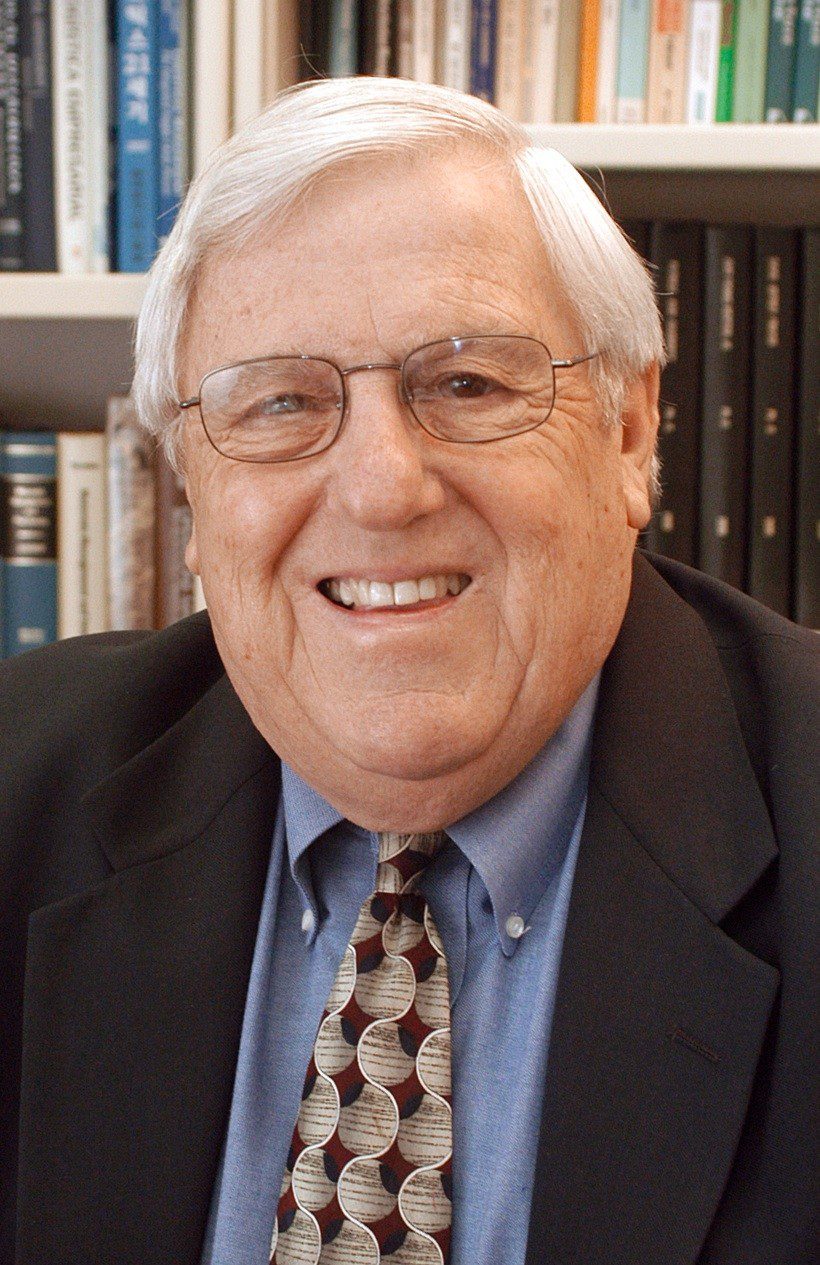
Donald Bowersox, one of the most well-known and influential supply chain management academics in the world. Bowersox was professor emeritus of marketing and supply chain management and served as dean of the Broad College of Business and the Broad Graduate School of Management from 2001-02 He dedicated more than 40 years to Michigan State University and is largely responsible for the stature that the Broad College has in the field of supply chain management. U.S. News and World Report currently ranks MSU’s supply chain management program No. 2 behind only the Massachusetts Institute of Technology’s program. Bowersox received three degrees from MSU – a bachelor’s in 1954, an M.B.A. in 1958 and a doctorate in 1960. Prior to his 1966 appointment on the faculty at MSU, Bowersox was an Air Force pilot and in executive management for the E.F. MacDonald (Plaid) Stamp Co. He was appointed as the John H. McConnell Chair in Business Administration in 1985 in recognition of his contributions to academia, industry, and the community. In 2002, he was honored with the Broad College’s first Lifetime Alumni Achievement Award. Throughout his career, Bowersox wrote 10 textbooks that have been translated into 15 languages. He co-authored such works as the fourth edition of the textbook “Supply Chain Logistics Management” and “Physical Distribution Management: Logistics Problems of the Firm,” which is said to be the industry’s first logistics textbook. He also authored more than 250 articles on marketing, transportation and logistics. He was a member of the editorial review board of the Council of Supply Chain Management Professionals Quarterly, Journal of Business Logistics, International Journal of Logistics Management, the Journal of Supply Chain Management and Supply Chain Management Review.
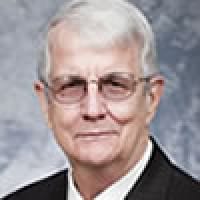
Dr. James Stock has been honored internationally three separate times for his achievements in supply chain and logistics management by the industry’s leading professional organizations. This year, he will receive the Supply Chain Management Professionals’ Distinguished Service Award – the highest honor that an individual can receive for their achievements in supply chain and logistics management. In addition, he will also be honored with the Special Lifetime Logistics Service Award by Yasar University in Izmir, Turkey and the 9th International Logistics and Supply Chain Congress for his outstanding achievement and continuous contributions to the field.
During the course of his 35-year career, Stock has also been honored with, DC Velocity magazine’s “Rainmaker for 2006” and has been awarded the Eccles Medal and the Armitage Medal by SOLE – The International Society of Logistics.
Stock has more than 150 publications in the field. He has authored six books and his publications have been translated into five different languages – Chinese, Czech, Portuguese, Russian, and Thai. He has also traveled to 46 countries on six continents to conduct research, lecture, or do consulting work for various organizations and universities.
Before coming to USF in 1989, Stock, the Frank Harvey Endowed Professor of Marketing at the College of Business, taught at Michigan State University, the Air Force Institute of Technology, the University of Oklahoma, and the University of Notre Dame. He holds a BS and MBA from the University of Miami (Florida) and a PhD from The Ohio State University. Stock is an active member of numerous professional organizations, former editor of the Journal of Business Logistics and International Journal of Physical Distribution & Logistics Management, serves on many international editorial review boards, and is on the USF Honors and Awards committee.
